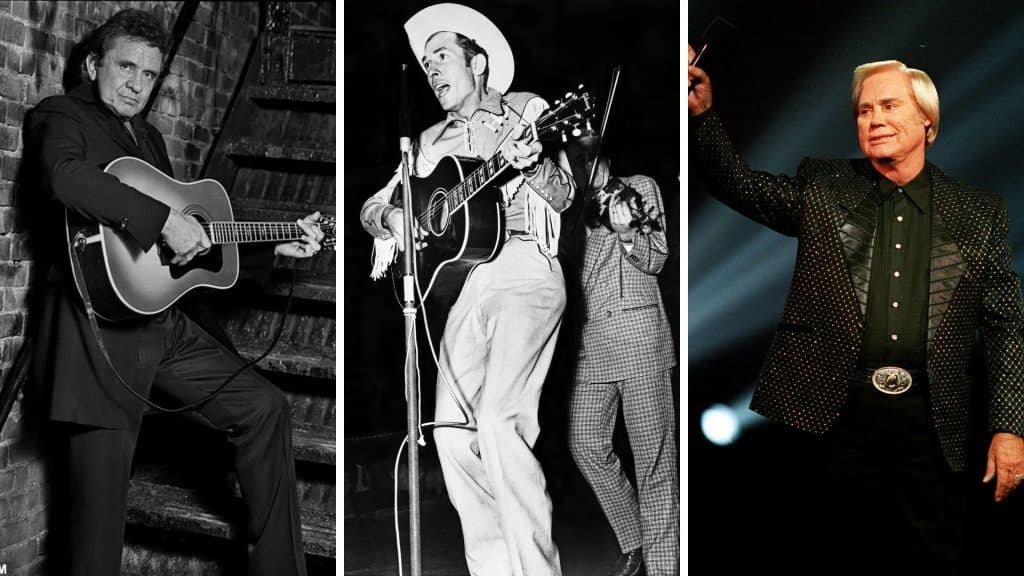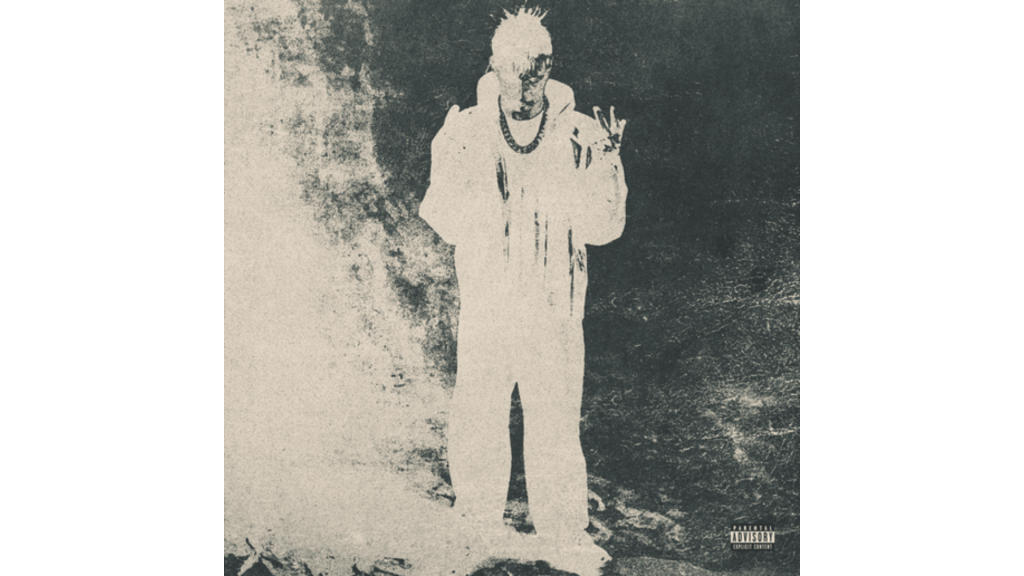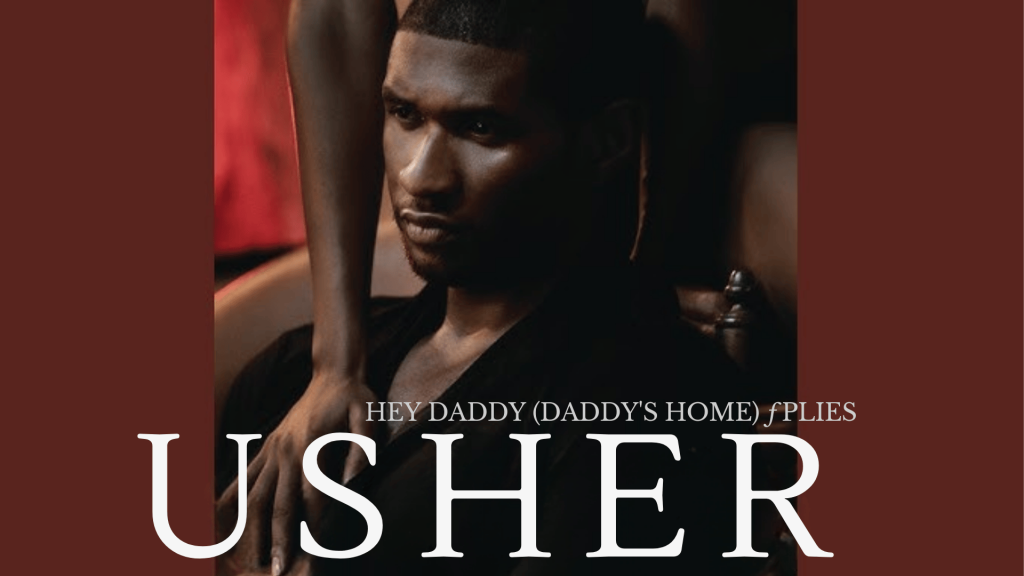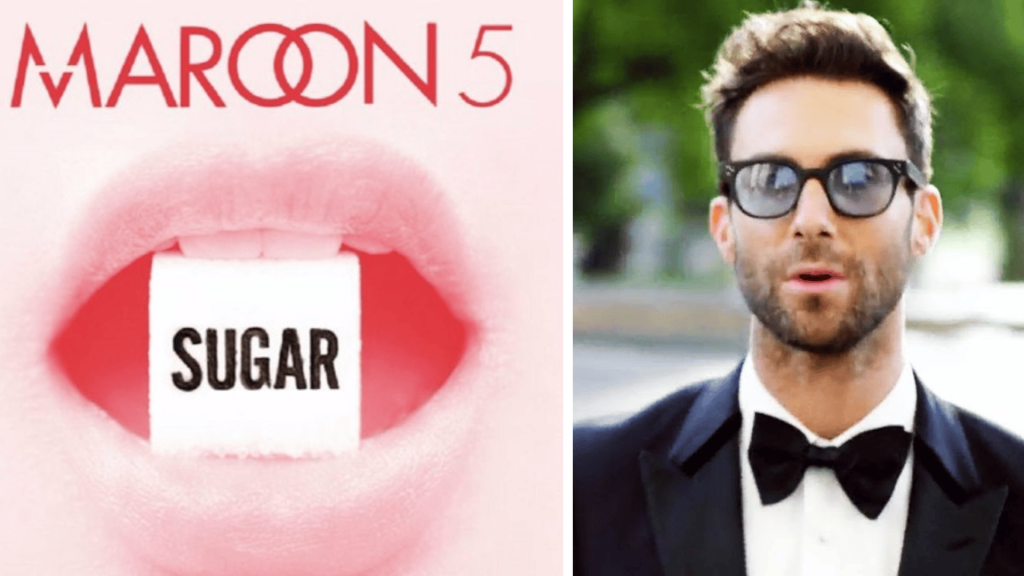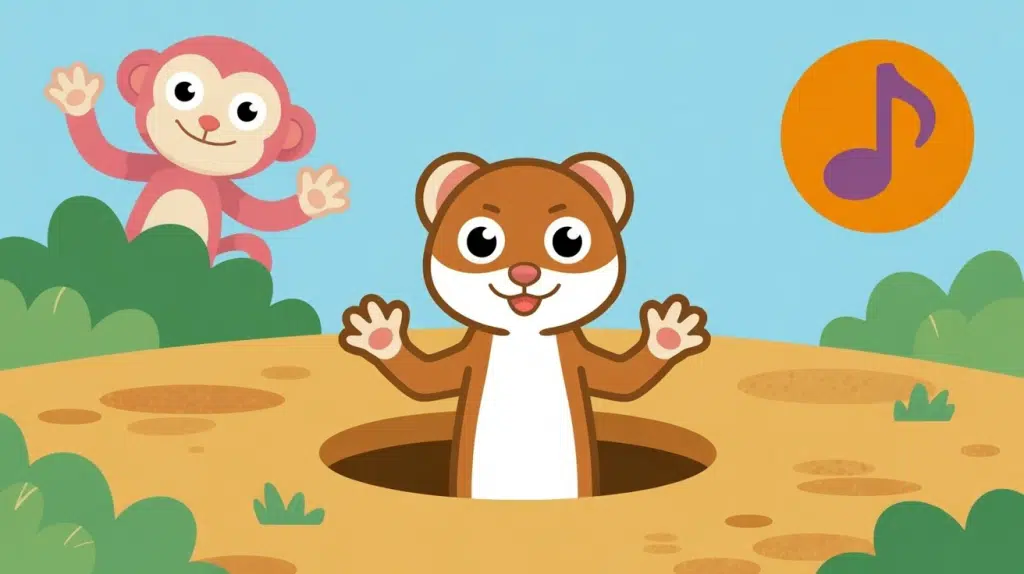Step back to an era when legendary male singers’ raw, passionate voices defined country music. The 1950s marked a golden age for the genre, and these icons left an unforgettable mark on music history.
Learn the stories behind the old country singers, male 1950s, who charmed audiences with their heartfelt lyrics, typical vocal styles, and absolute charisma.
From Hank Williams to Johnny Cash, these artists shaped the sound of country music and influenced generations to come. In this blog post, we will explore influential male country singers of the 1950s.
You’ll gain a fresh appreciation for their contributions to the genre and understand why their legacy continues. Join us on this nostalgic journey as we disclose the icons who defined an era.
Country Singers of 1950s Country
The 1950s were a defining decade for country music, and these amazing artists set the stage for future generations.
With their distinctive styles and groundbreaking hits, these pioneers carved a path that others would follow for decades to come.
1. Johnny Cash: The Man in Black
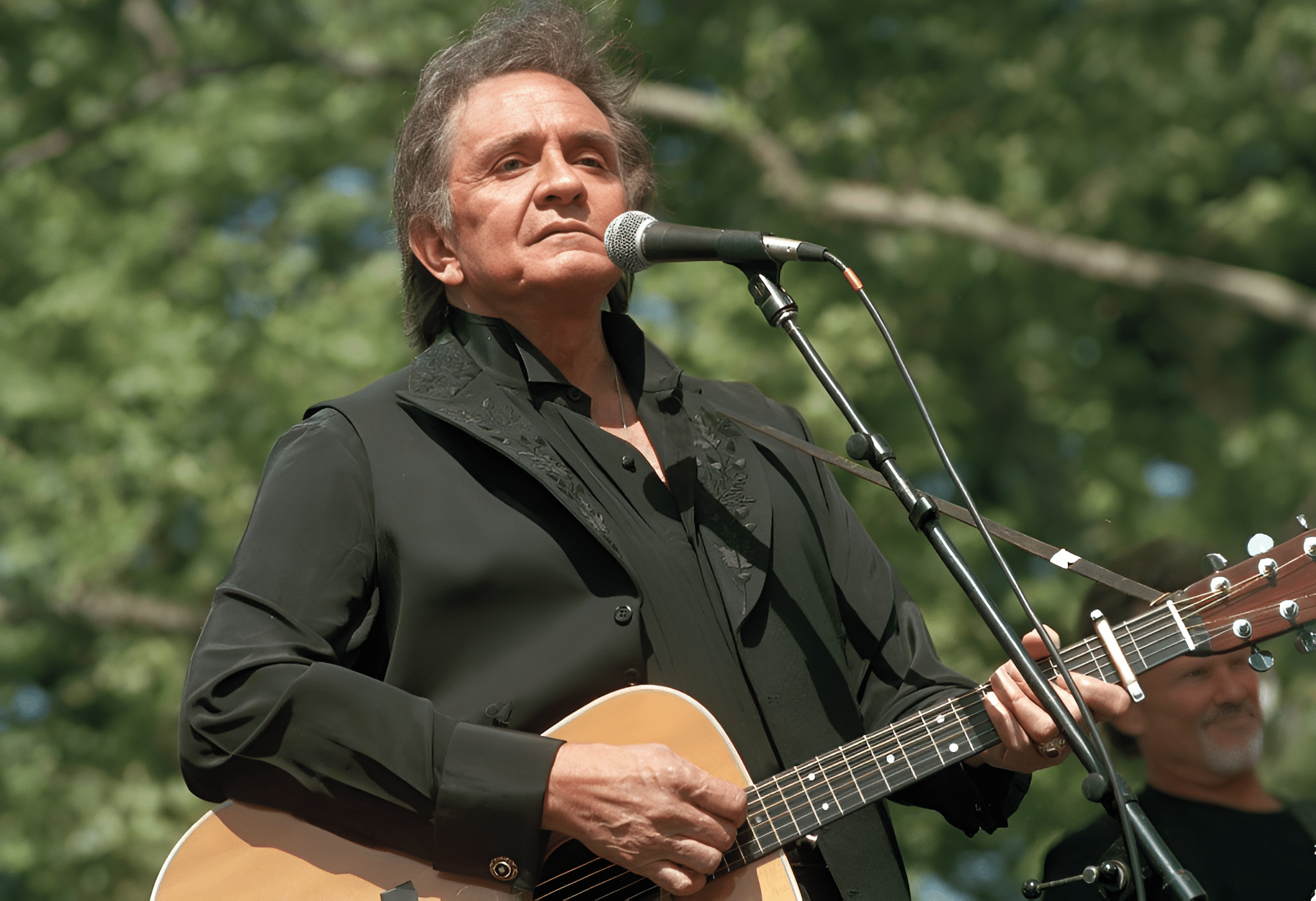
No discussion of old country singers in the 1950s would be complete without mentioning Johnny Cash.
With his deep, resonant voice and rebellious persona, Cash captivated audiences with hits like “I Walk the Line” and “Folsom Prison Blues.”
His storytelling prowess and raw authenticity set him apart, earning him the moniker “The Man in Black.”
Cash’s influence extended beyond country music.
He fearlessly addressed social issues and pushed boundaries with his music.
2. Hank Williams: The Hillbilly Shakespeare
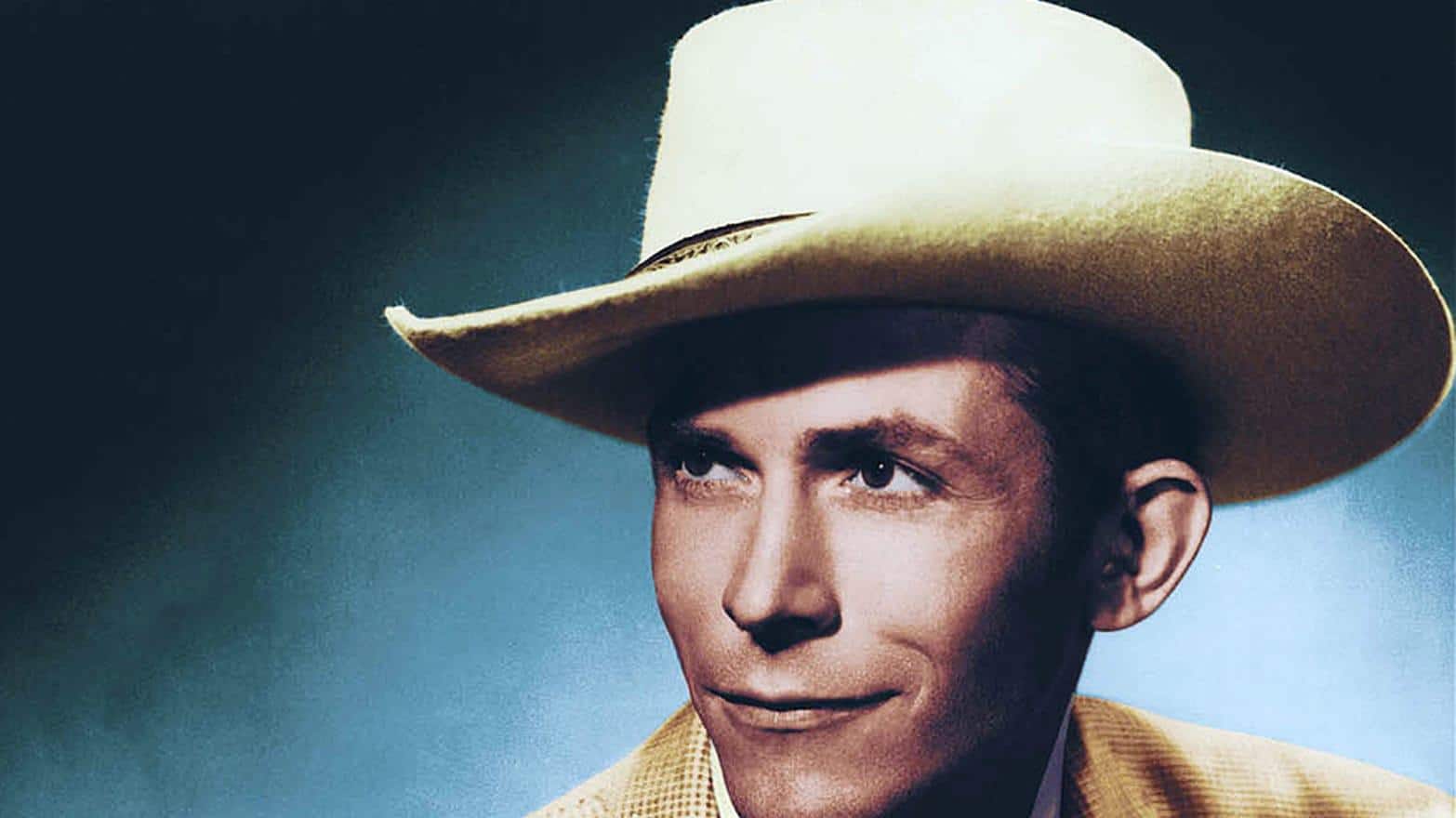
Hank Williams, often referred to as the “Hillbilly Shakespeare,” left an indelible mark on country music with his poignant lyrics and passionate vocal delivery.
His timeless classics, such as “Your Cheatin’ Heart” and “I’m So Lonesome I Could Cry,” showcased his ability to capture the human experience with raw honesty.
Despite his short life, Williams’ impact on the genre was immeasurable, and his songs continue to resonate with listeners decades later.
3. Lefty Frizzell: The Smooth Vocalist
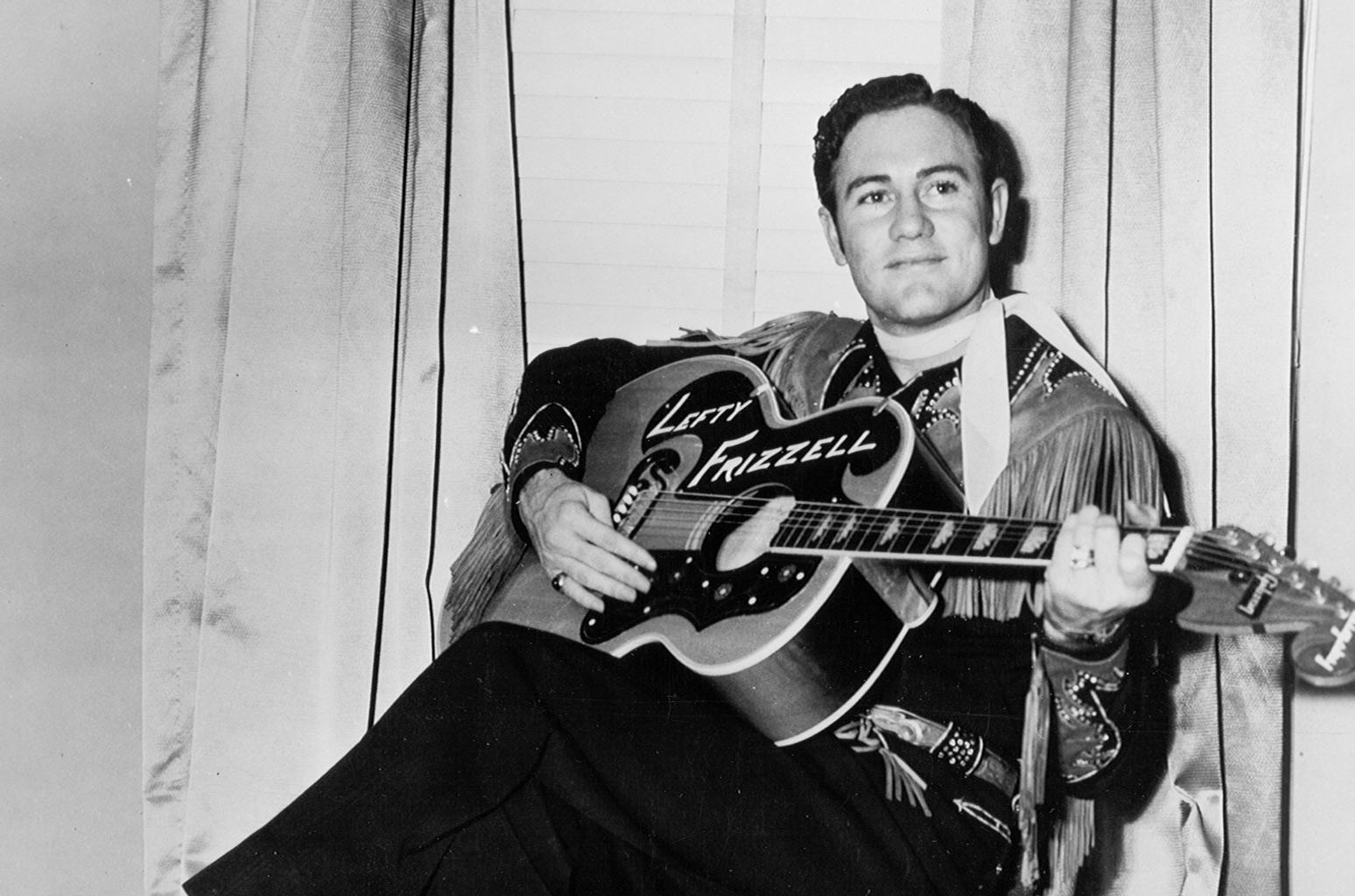
Lefty Frizzell’s smooth, effortless vocal style set him apart from his contemporaries.
With hits like “If You’ve Got the Money I’ve Got the Time” and “Always Late (With Your Kisses),” Frizzell’s music was characterized by his unique phrasing and storytelling abilities.
His influence can be heard in the work of countless country artists who followed in his footsteps, cementing his place as one of the pioneering old country singers of the 1950s.
4. Marty Robbins: The Master of Musical Narratives
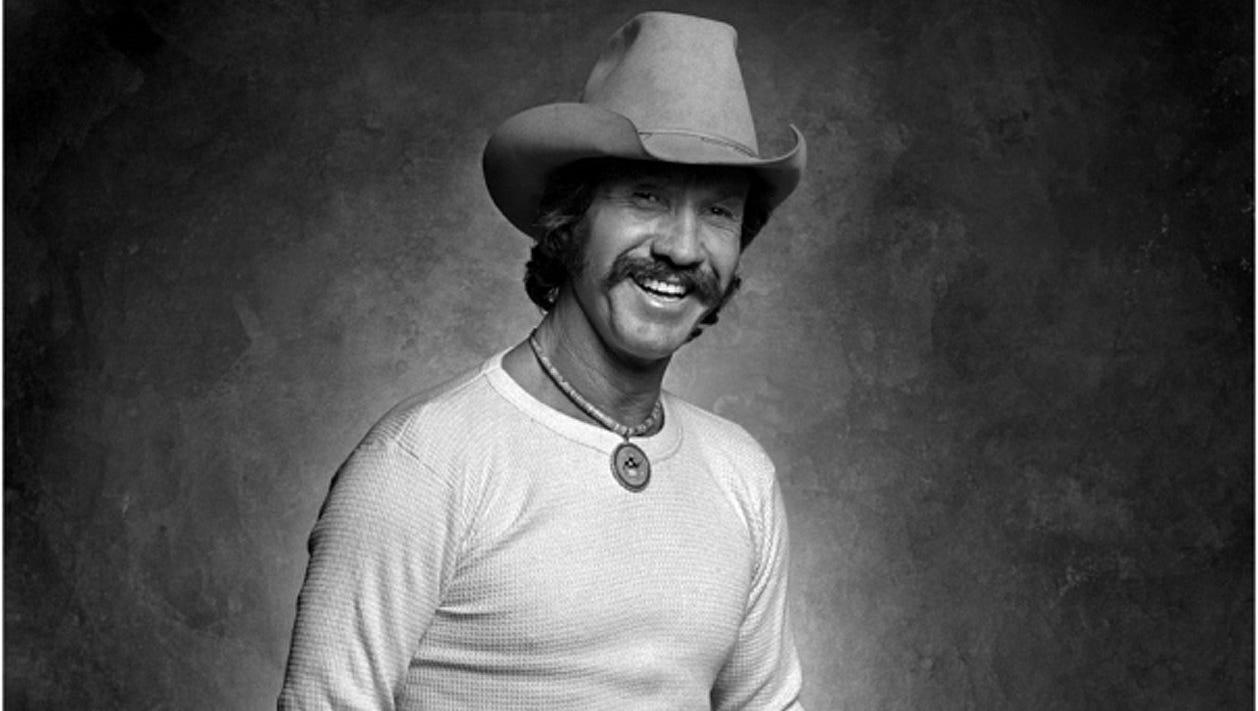
Marty Robbins was a gifted storyteller who brought characters and tales to life through his music.
His signature song, “El Paso,” is a prime example of his ability to weave a compelling narrative within a musical framework.
With a decades-long career, Robbins showcased his versatility by exploring various styles, including Western ballads, Hawaiian music, and rockabilly.
His contributions to the canon of old country singers in the 1950s solidified his place as one of the era’s most beloved entertainers.
5. Johnny Horton: The Voice of Historical Ballads
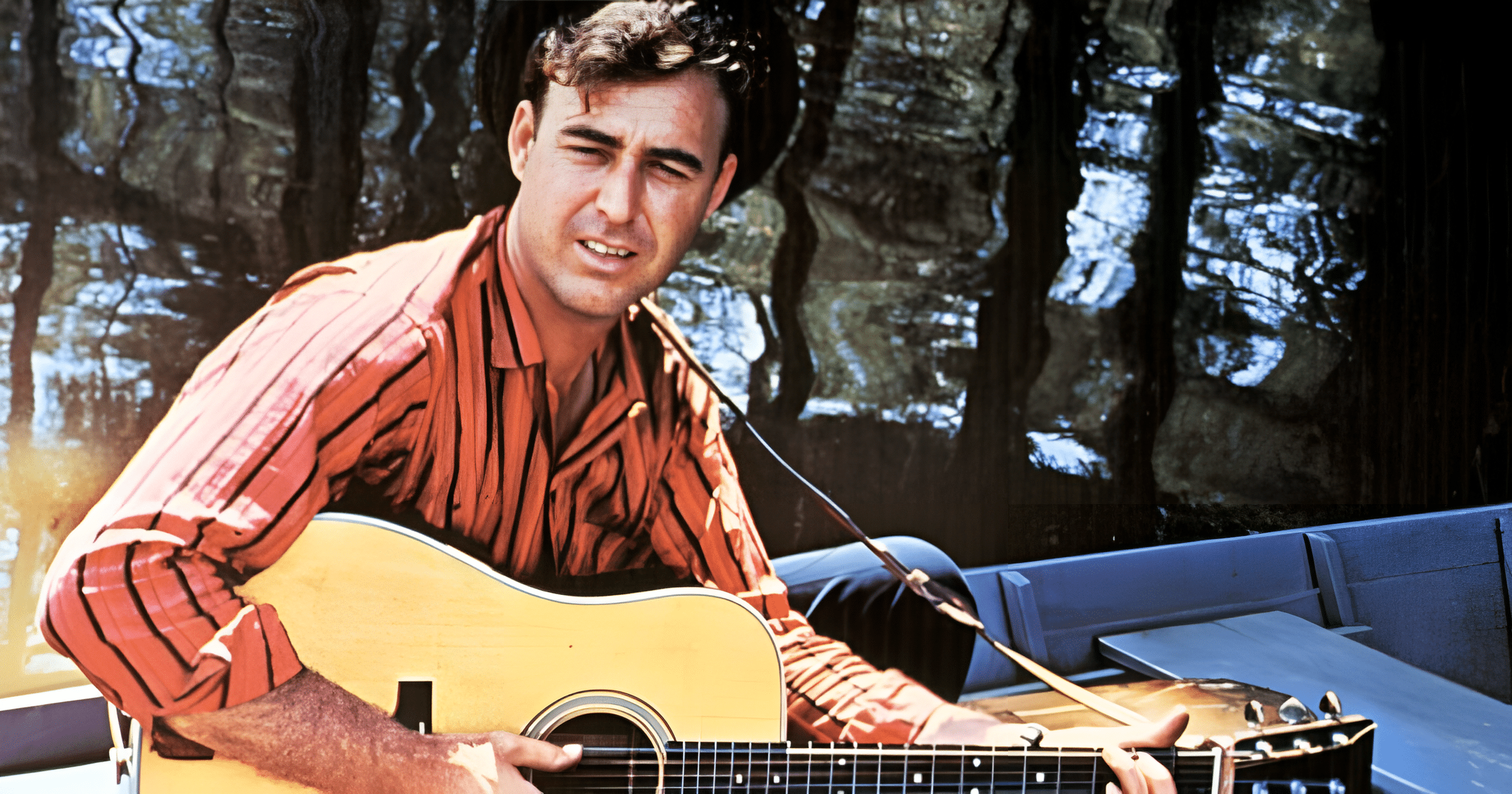
Johnny Horton’s music often celebrated American history and folklore, earning him a reputation as a master of historical ballads.
His most famous hit, “The Battle of New Orleans,” recounted the final battle of the War of 1812 with a lively, infectious melody.
Horton’s ability to bring the past to life through his music made him a favorite among fans of old country singers in the 1950s.
Though his career was cut short, his legacy lives on through his timeless recordings.
6. Ray Price: The Innovator of the “Ray Price Beat”
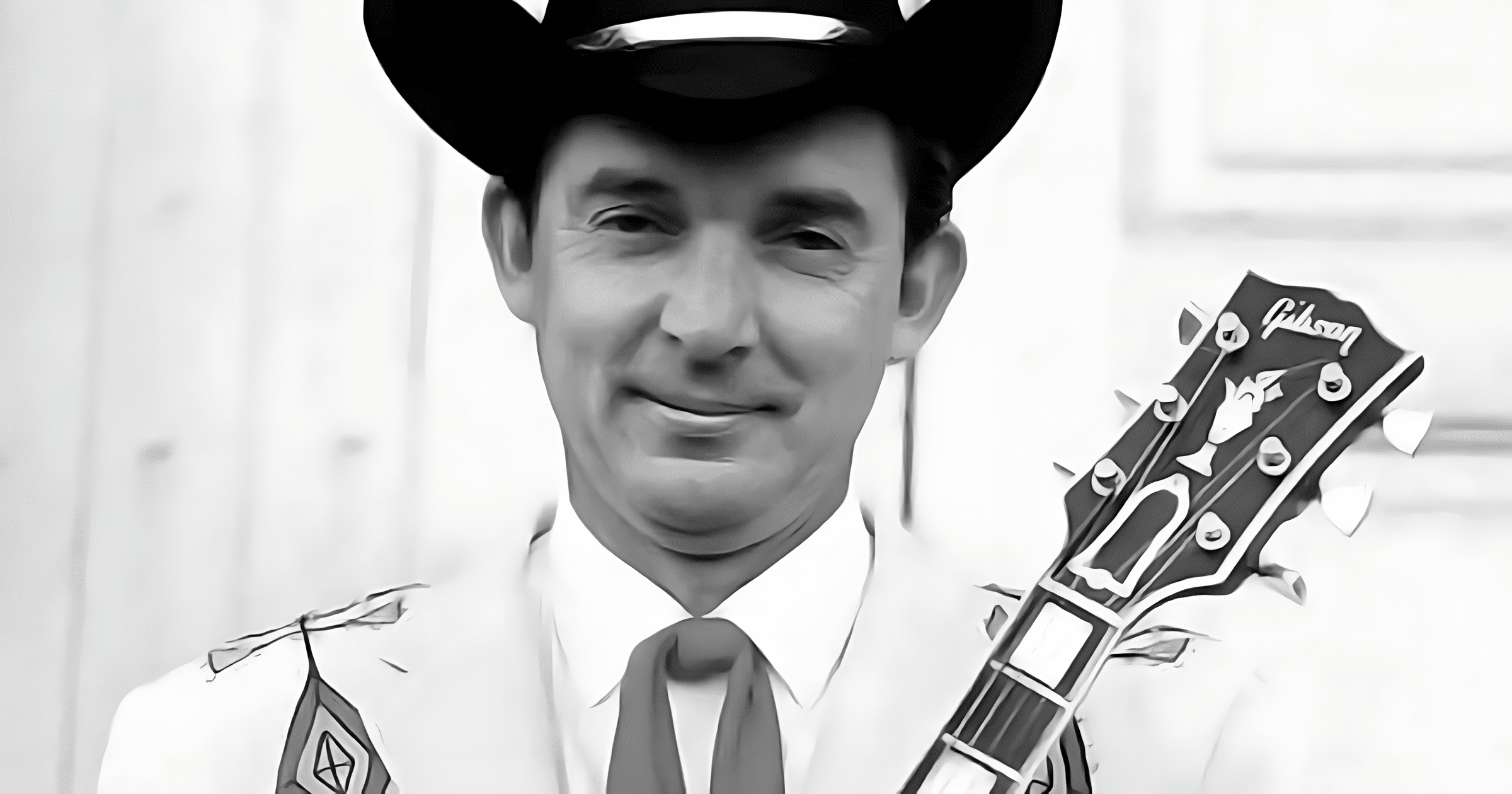
Ray Price left an indelible mark on country music with his distinctive “Ray Price beat,” a 4/4 shuffling rhythm that revolutionized the genre’s sound.
His 1956 hit, “Crazy Arms,” showcased this innovative style and solidified his status as a pioneer among old country singers in the 1950s.
Price’s smooth, expressive voice and ability to navigate various musical styles, from honky-tonk to Western swing, made him a beloved figure in the country music community.
7. Don Gibson: The Prolific Songwriter
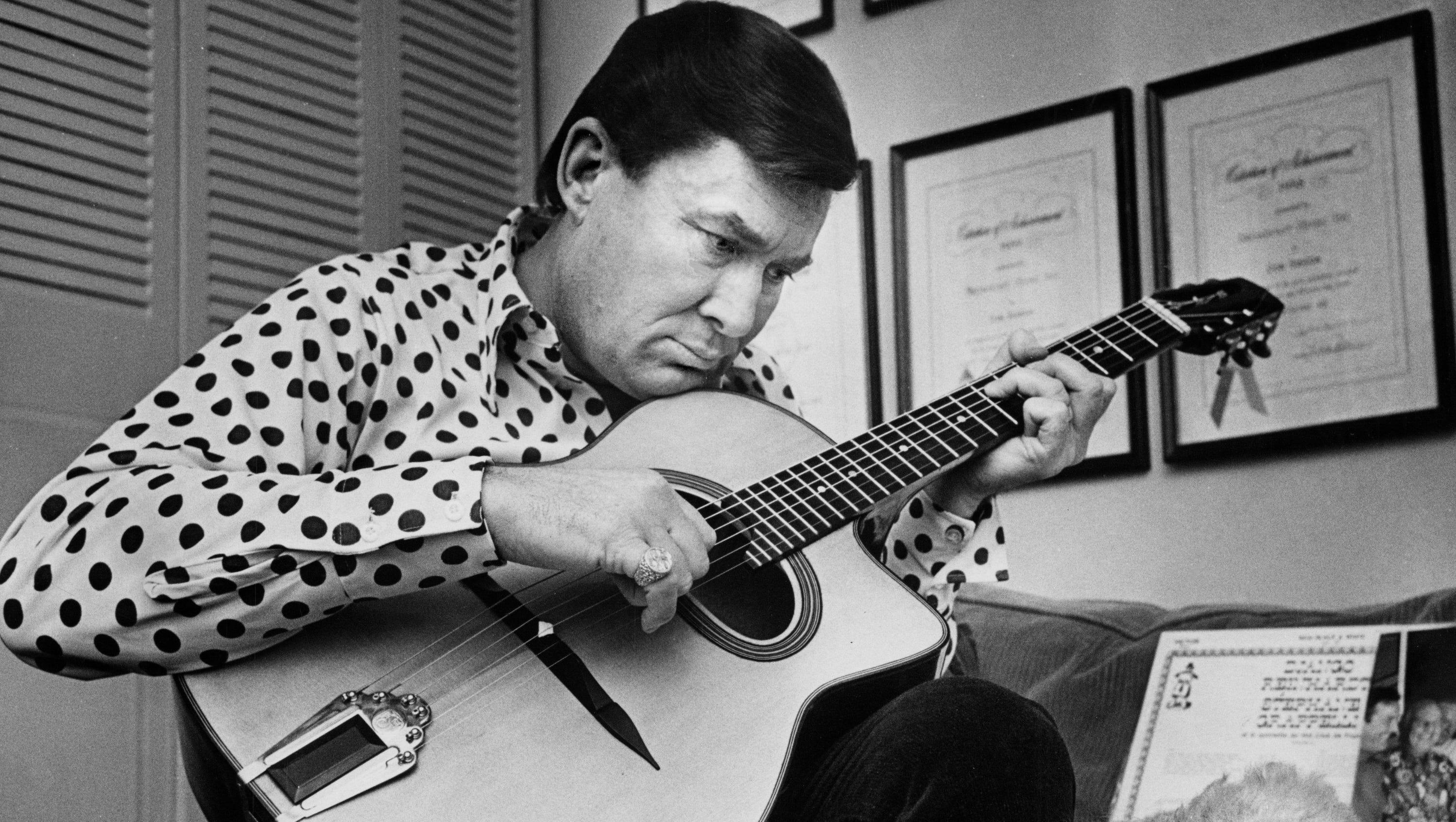
Don Gibson’s impact on country music extended far beyond his recordings.
As a songwriter, he penned numerous hits for himself and other artists, cementing his place among the most influential old country singers in the 1950s.
His introspective ballad “Oh Lonesome Me” became a country standard, with its sad lyrics and memorable melody.
Gibson’s songwriting prowess earned him a spot in the Nashville Songwriters Hall of Fame, a testament to his enduring contributions to the genre.
8. Tennessee Ernie Ford: The Booming Baritone
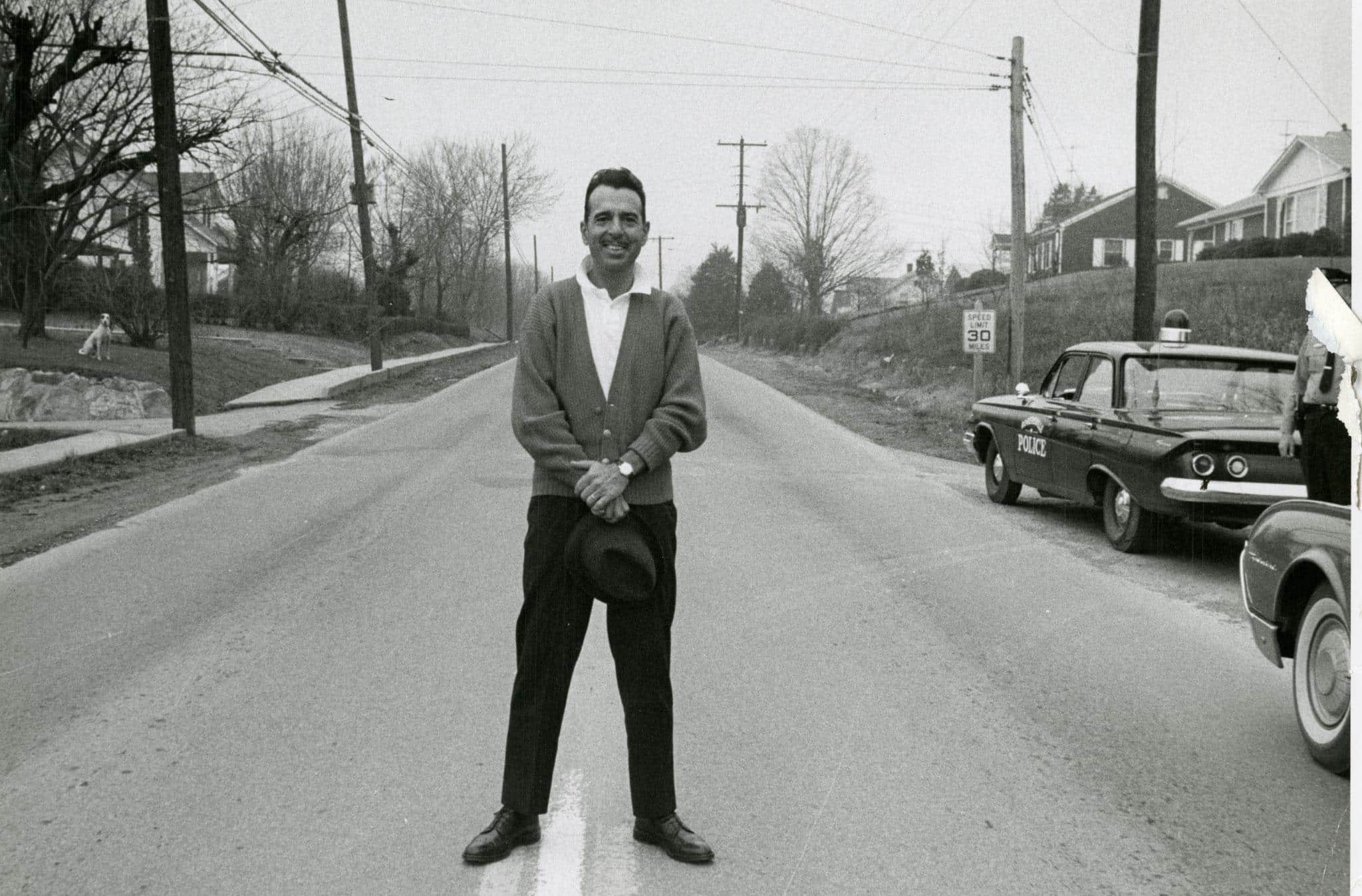
Tennessee Ernie Ford left an indelible mark on the country music landscape with his deep, resonant voice and larger-than-life personality.
His signature song, “Sixteen Tons,” became a crossover hit, appealing to audiences beyond the typical country fanbase.
Ford’s ability to infuse his performances with humor and charm made him a beloved figure among fans of old country singers in the 1950s.
His influence extended to television, where he hosted popular variety shows and introduced country music to a wider audience.
9. George Jones: The Emotionally Charged Vocalist
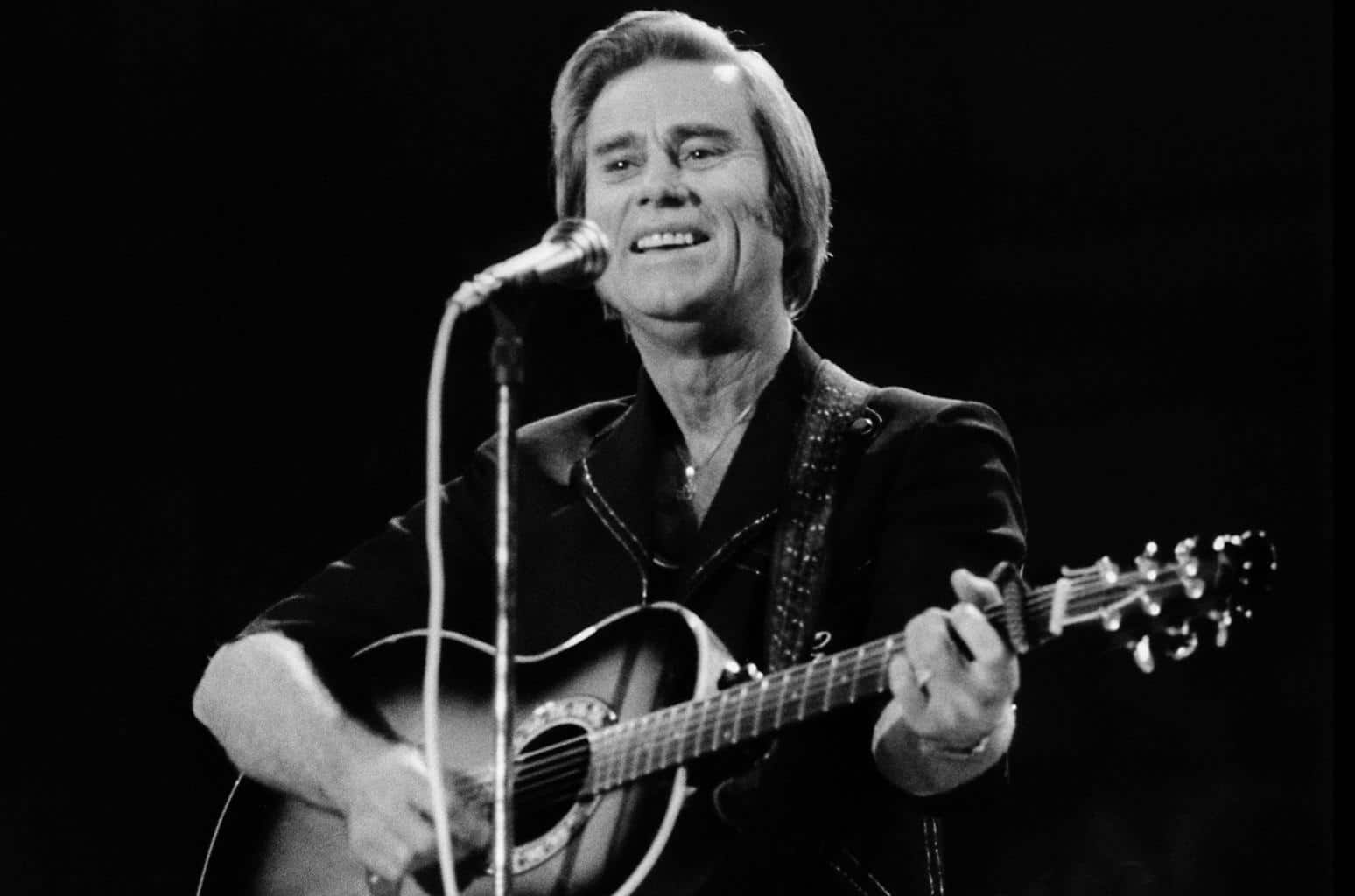
George Jones’ soulful voice and heartfelt delivery earned him the nickname “The Possum” and a reputation as one of the most passionate old country singers in the 1950s.
His 1959 hit, “White Lightning,” showcased his ability to inject humor into his performances, while his later recordings, such as “She Thinks I Still Care,” highlighted his outstanding ability to convey the depths of human emotion.
Jones’ influence on country music is immeasurable, inspiring generations of artists to welcome vulnerability and authenticity in their music.
10. Eddy Arnold: The Tennessee Plowboy
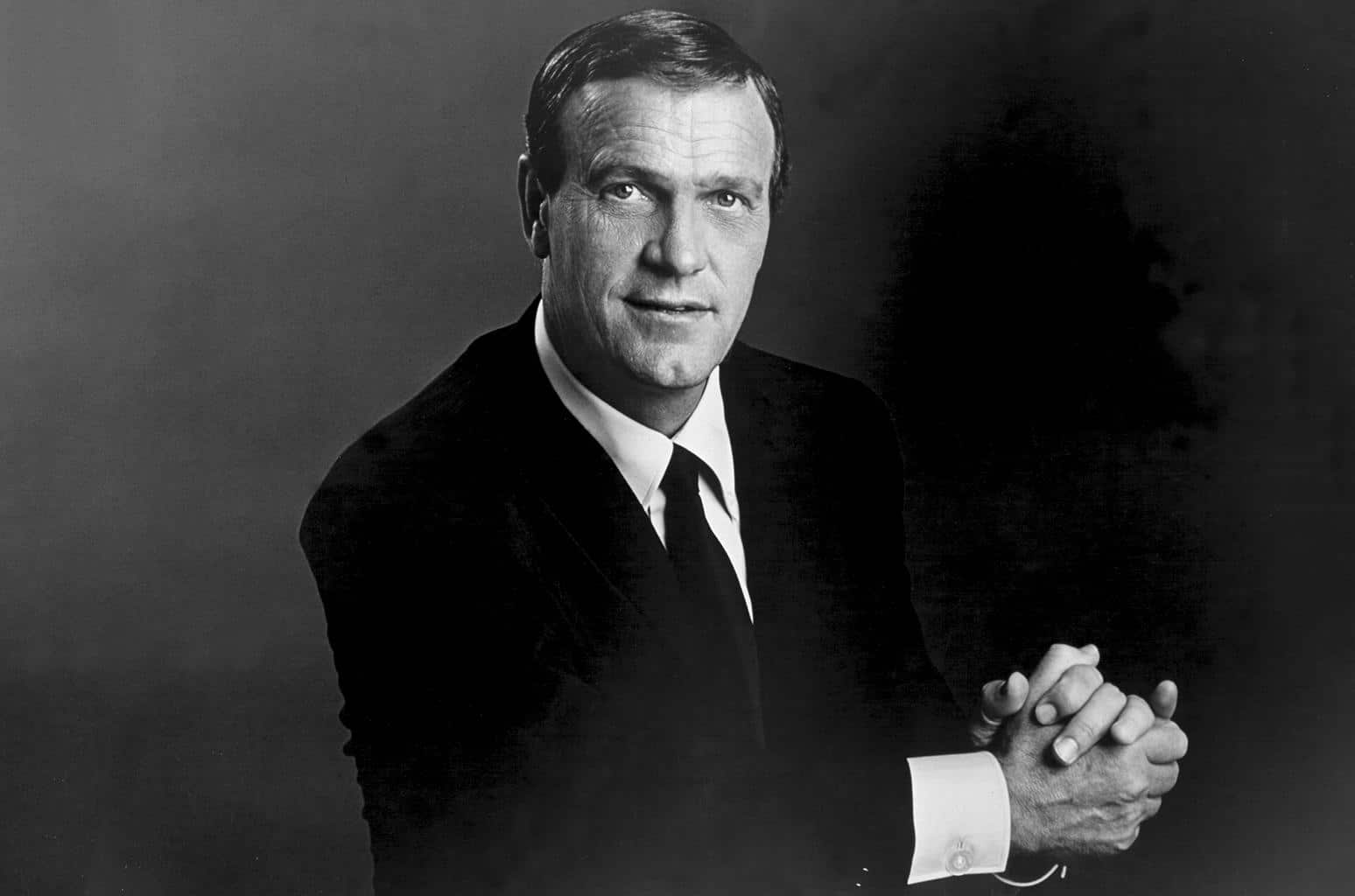
Eddy Arnold’s smooth baritone voice and sophisticated style earned him the nickname “The Tennessee Plowboy.”
His ability to blend country, pop, and folk influences made him one of the most successful crossover artists among old country singers in the 1950s.
Arnold’s 1965 hit, “Make the World Go Away,” showcased his ability to deliver a heartfelt performance that resonated with audiences across musical genres.
His success helped pave the way for country music’s expansion into the mainstream.
11. Jim Reeves: The Gentleman of Country Music
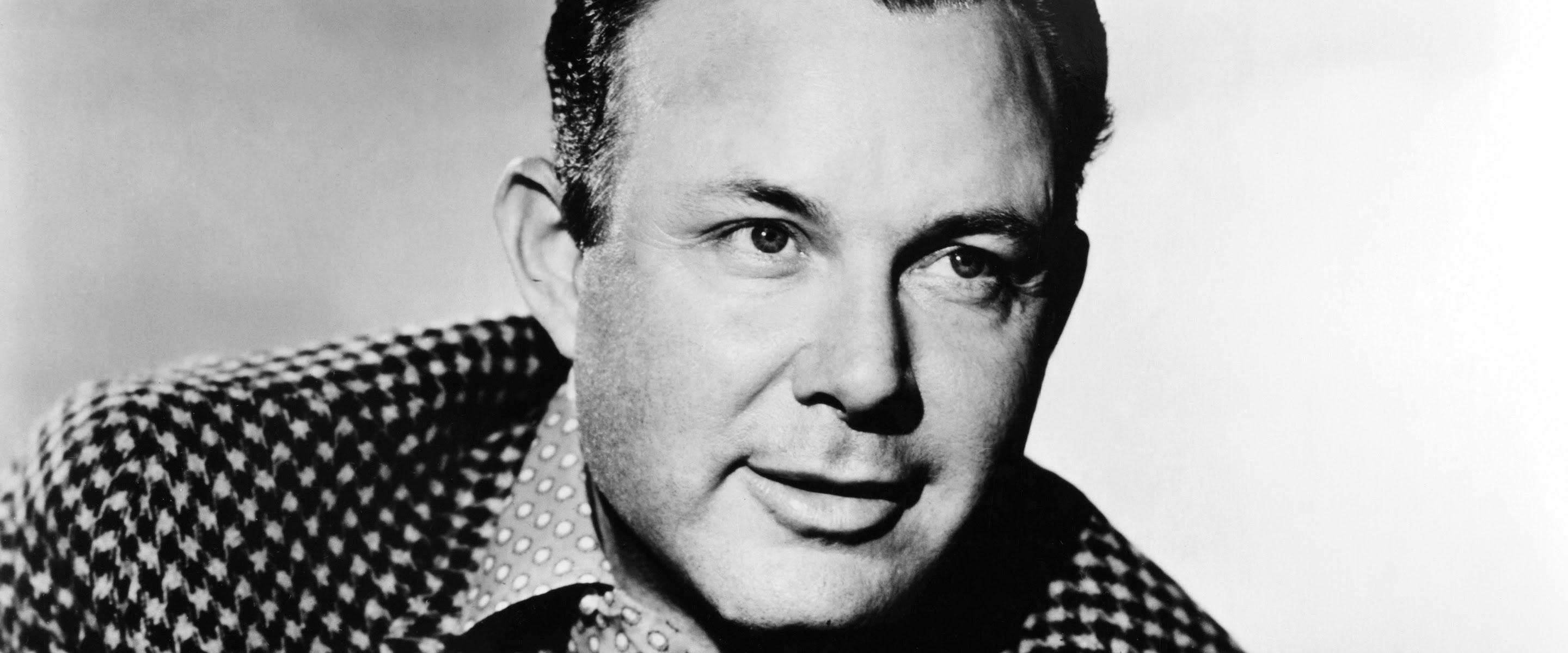
Jim Reeves’ warm, soft voice and gentlemanly conduct earned him a devoted following among fans of old country singers in the 1950s.
His 1959 hit, “He’ll Have to Go,” showcased his ability to deliver a romantic ballad with sincerity and emotional depth.
Reeves’ music often blended country, pop, and R&B influences, making him a key figure in the “Nashville Sound” movement that broadened country music’s appeal.
His untimely death in a plane crash in 1964 cut short a promising career, but his legacy as one of the most beloved crossover artists of the era endures.
12. Bill Monroe: The Visionary “Father of Bluegrass”
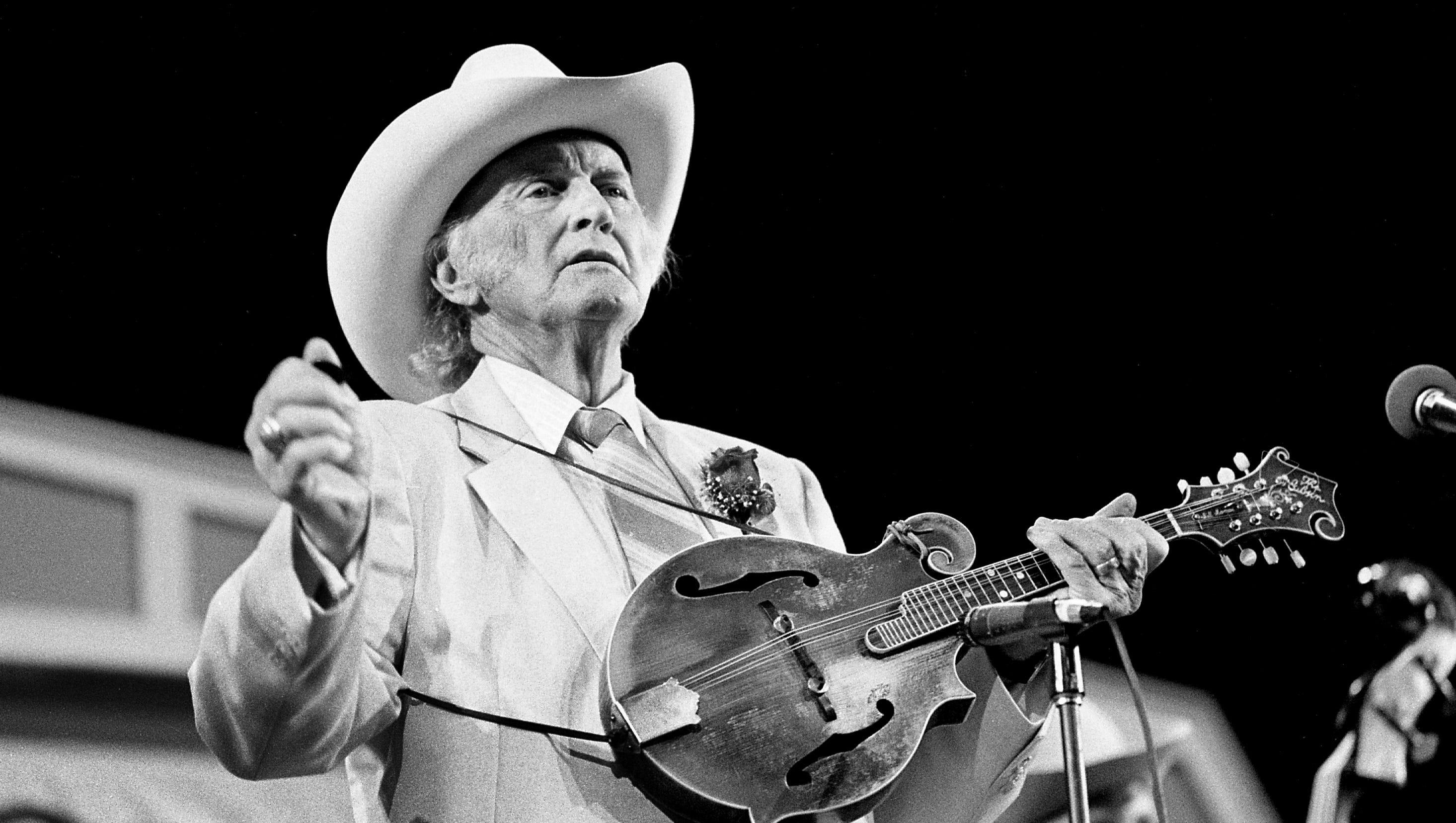
Bill Monroe’s innovative musical style gave birth to a new sub-genre of country music: bluegrass.
His high-energy performances, featuring virtuosic mandolin playing and complex vocal harmonies, captivated audiences and inspired a devoted following.
As the frontman of his band, The Blue Grass Boys, Monroe’s influence extended far beyond the domain of old country singers in the 1950s, shaping the sound of American roots music for generations to come.
His key tracks include “Blue Moon Kentcuky” and “New River Train.”
13. Webb Pierce: The Honky-Tonk Hero
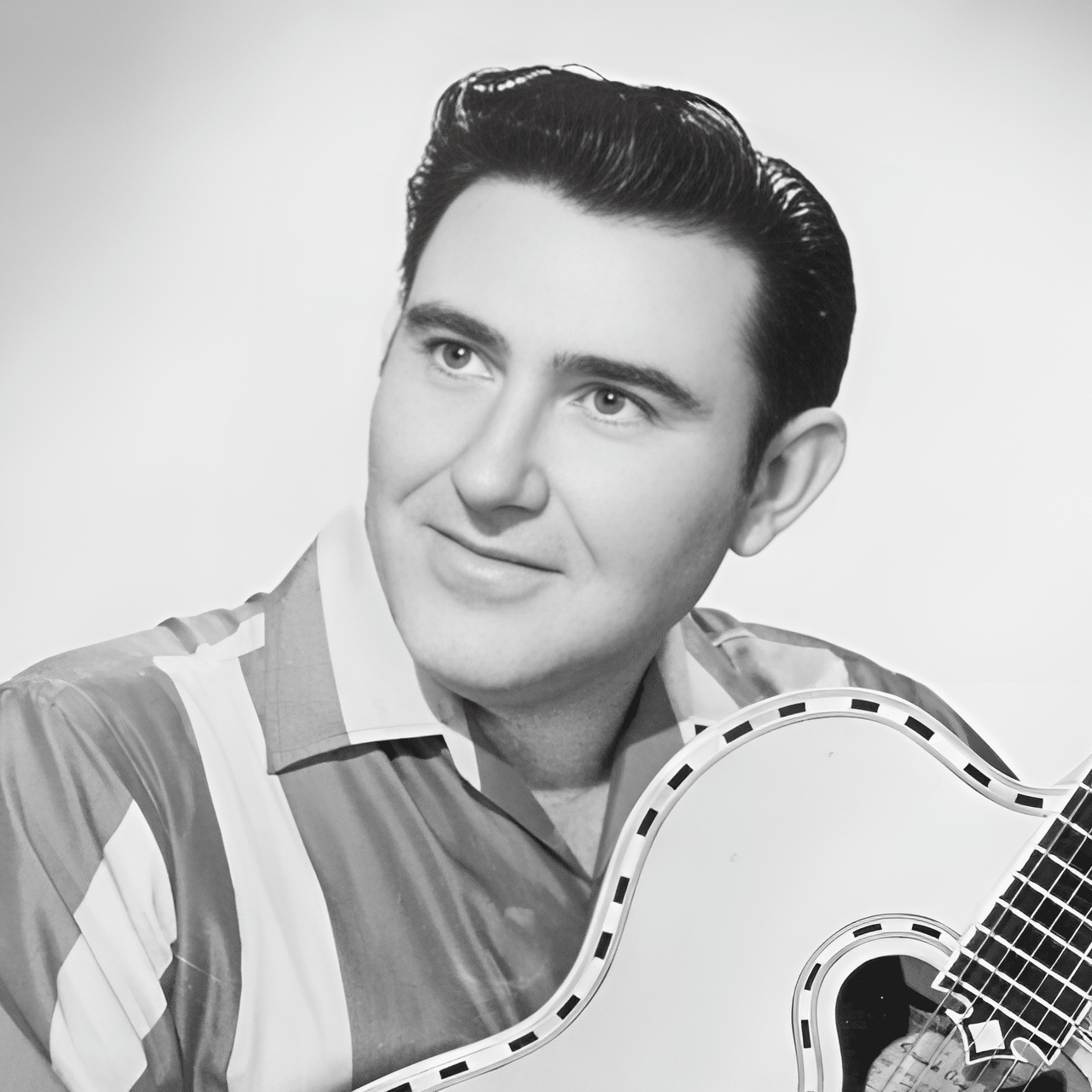
Webb Pierce’s honky-tonk hits, such as “There Stands the Glass” and “In the Jailhouse Now,” epitomized the sound of 1950s country music.
With his distinctive voice and charismatic stage presence, Pierce became one of the most popular old country singers in the 1950s, scoring numerous chart-topping singles throughout the decade.
His success helped solidify the honky-tonk style as a cornerstone of the country music genre.
14. Carl Smith: The Smooth-Voiced Artiste
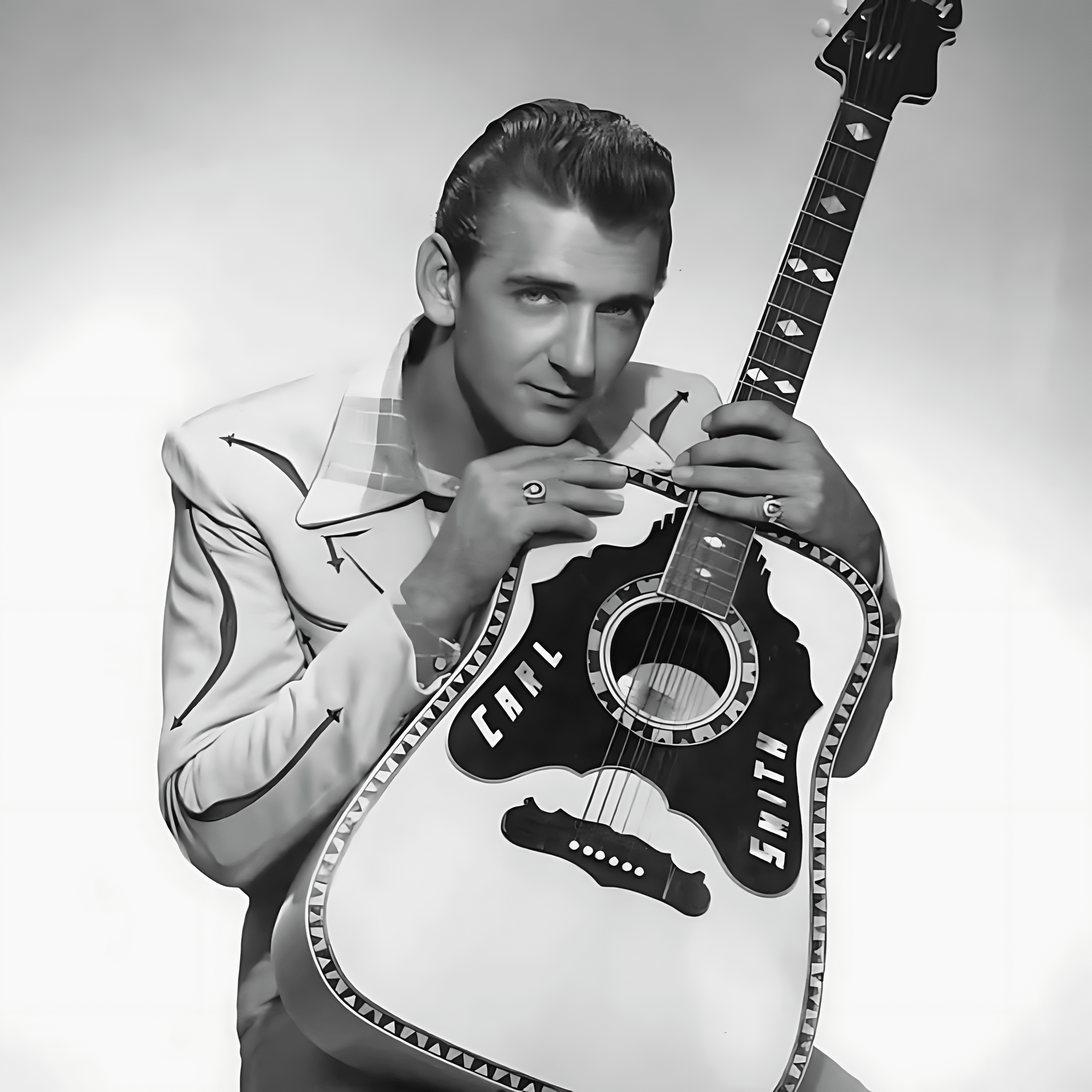
Carl Smith’s smooth, humming vocals set him apart from the more rough-hewn sounds of many old country singers in the 1950s.
His hits, “Hey Joe!” and “Don’t Just Stand There,” showcased his ability to deliver a song with effortless charm and sophistication.
Smith’s success on the country and pop charts demonstrated the growing mainstream appeal of country music during the decade.
15. Hank Snow: The International Ambassador
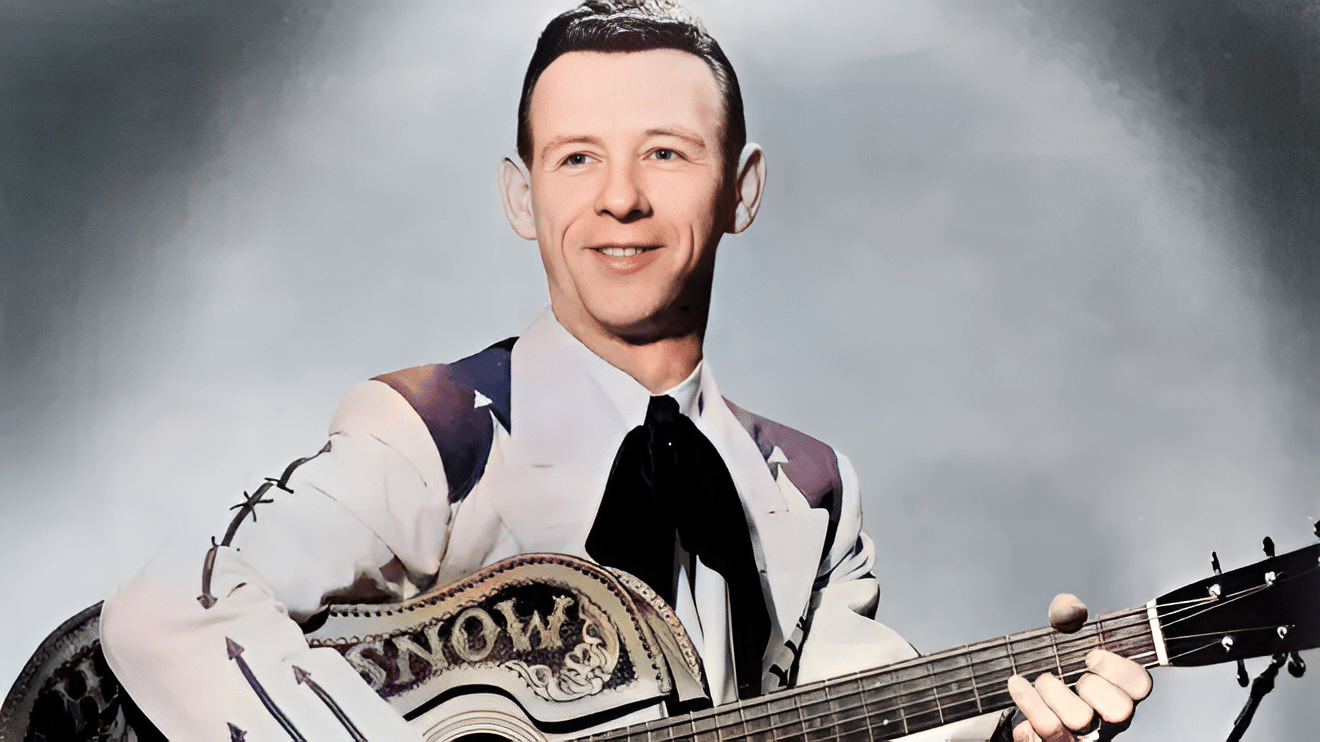
Canadian-born Hank Snow’s contributions to country music extended beyond the borders of the United States.
His 1950 hit, “I’m Moving On,” became a country standard and showcased his ability to infuse his music with folk and Western swing elements.
Snow’s international success helped spread the popularity of country music to a global audience, making him a vital ambassador for the genre.
16. Merle Haggard: The Bakersfield Sound Pioneer
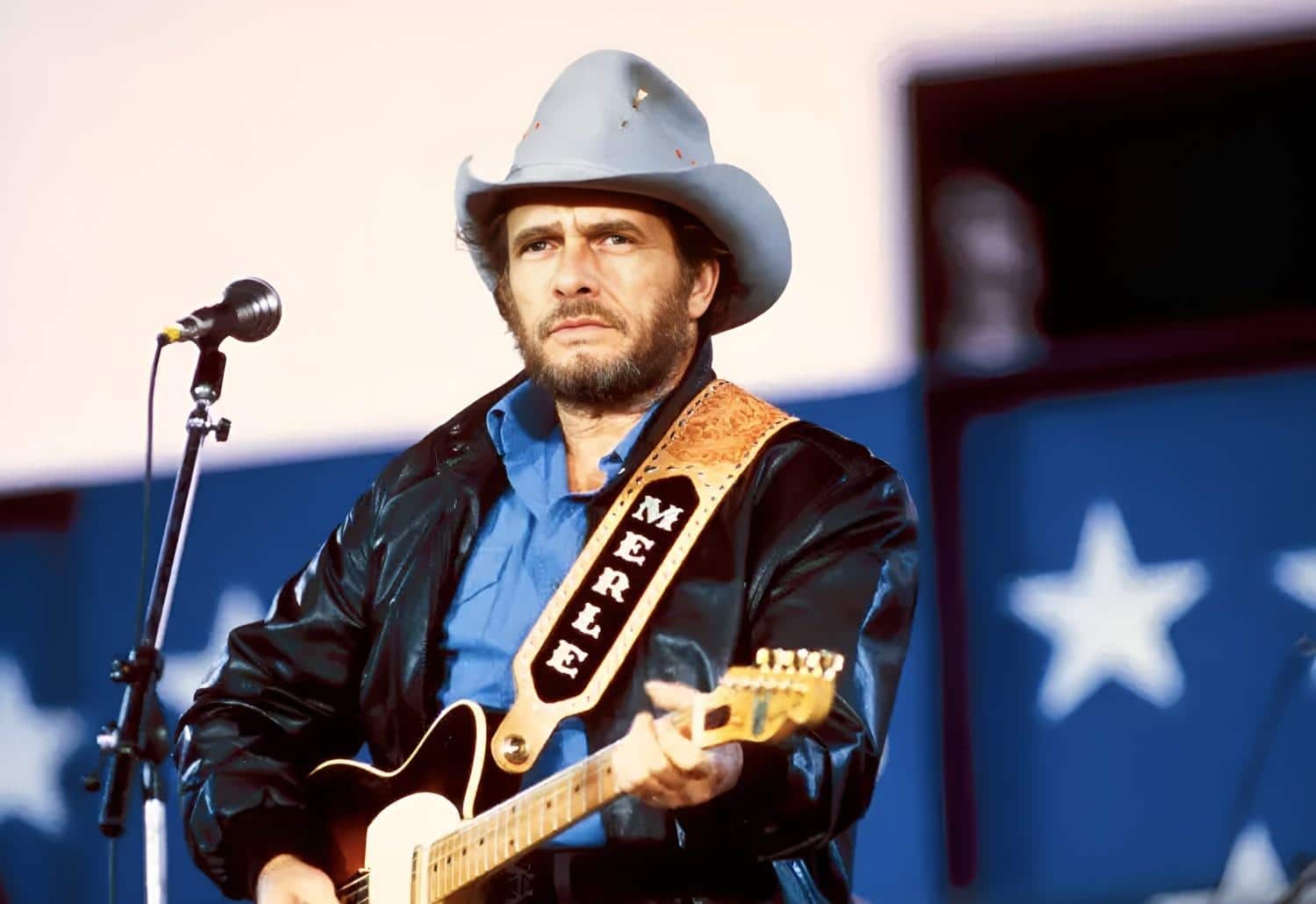
Although Merle Haggard’s career peaked in the 1960s and ’70s, his roots in country music can be traced back to the 1950s.
Haggard drew inspiration from the raw, truthful sounds of old country singers in the 1950s, particularly the Bakersfield Sound that emerged as a response to the more polished Nashville productions.
Haggard’s early influences, such as Lefty Frizzell and Hank Williams, shaped his approach to songwriting and his unflinching portrayal of working-class life.
His notable songs comprise “The Bottle Let Me Down” and “Swinging Doors”.
17. Waylon Jennings: The Outlaw Country Forerunner
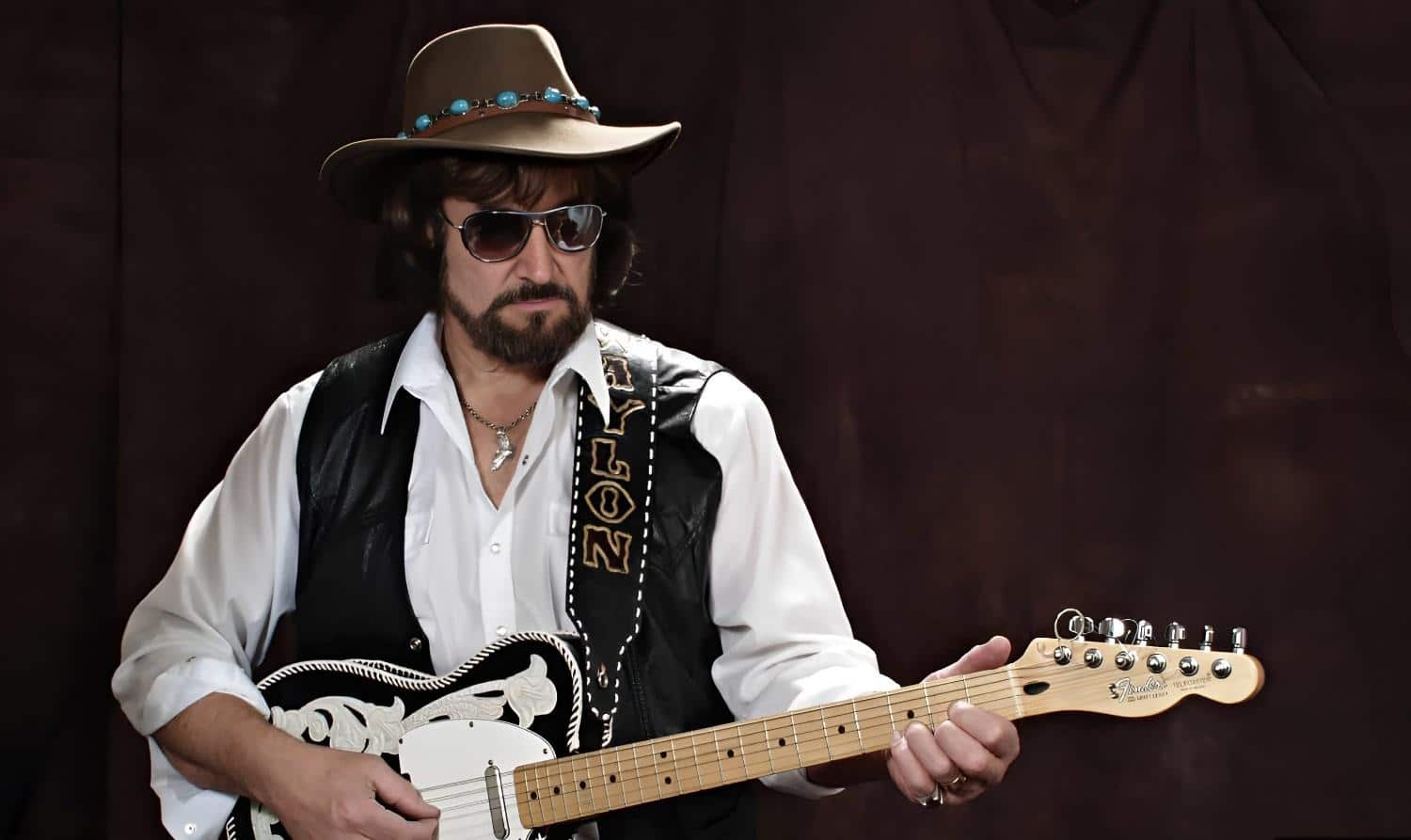
Waylon Jennings’ early career in the late 1950s found him working as a disc jockey and playing bass for Buddy Holly.
The ’50s country sound heavily influenced Jennings’ early recordings, but he would later become a key figure in the outlaw country movement of the 1970s.
Jennings’ rebellious spirit and independent streak can be traced back to the unorthodox attitudes of some old country singers in the 1950s, setting the stage for his later revolutionary impact on the genre.
The renowned artist gained fame through the success of his songs “This Time” and “Good Ol’ Boy.”.
18. Ernest Tubb: The Texas Musician
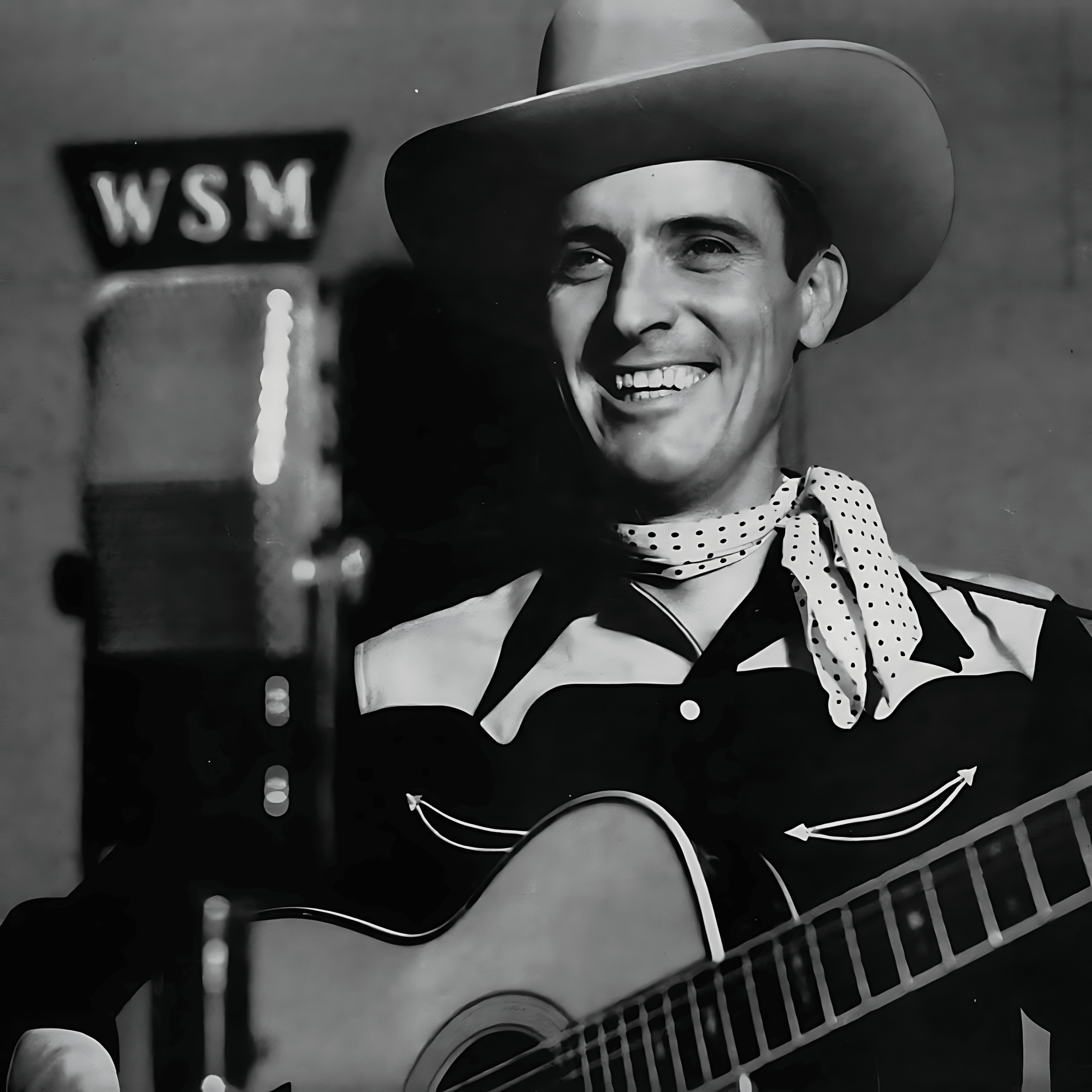
Ernest Tubb’s honky-tonk style and distinctive vocal delivery made him one of the most influential old country singers in the 1950s.
His 1941 hit, “Walking the Floor Over You,” became a honky-tonk standard and set the stage for the genre’s popularity throughout the decade.
Tubb’s Texas Troubadours band became a launching pad for many young musicians, and his support for up-and-coming artists helped shape the future of country music.
19. Red Foley: The Crossover Pioneer
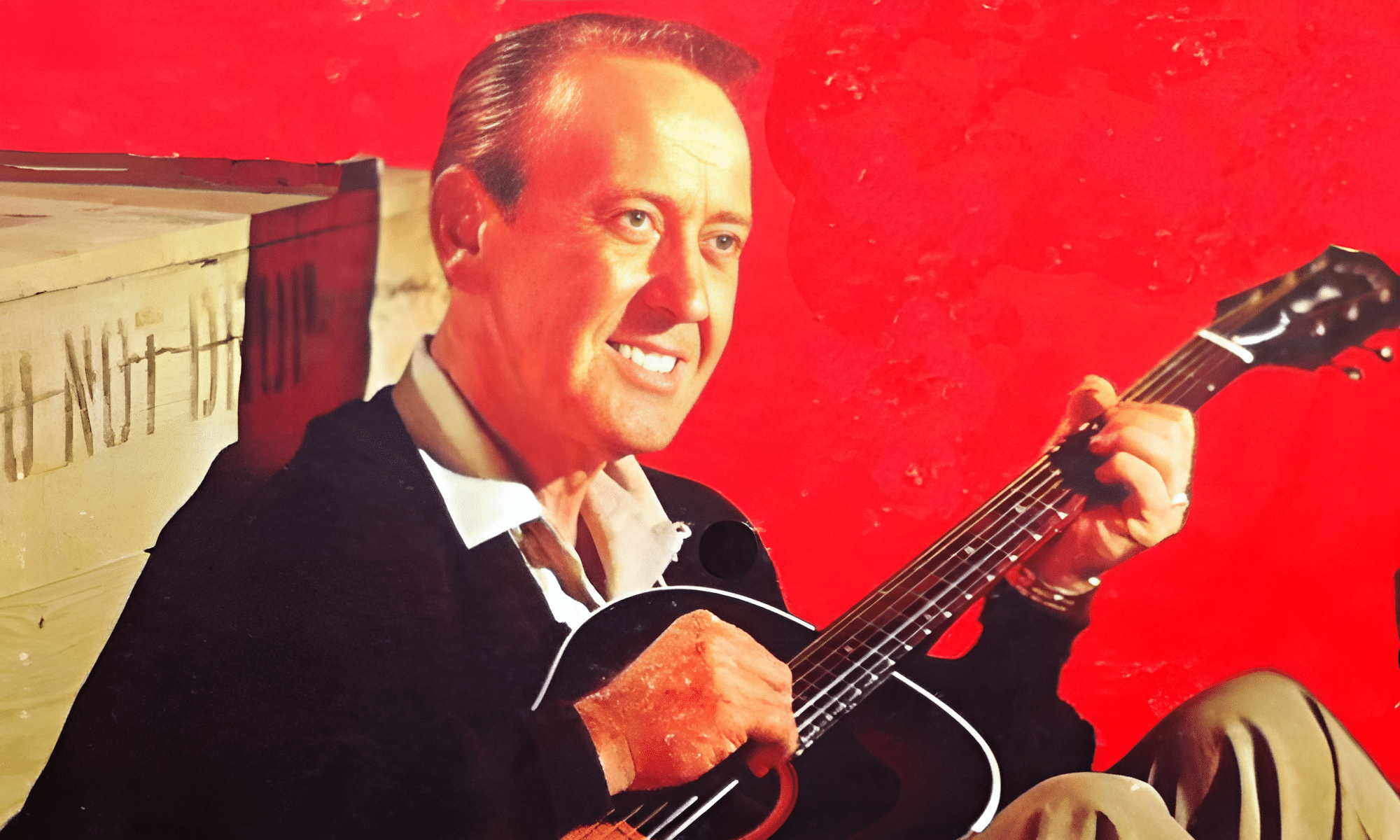
Red Foley’s contributions to country music in the 1950s often go overlooked, but his influence on the genre was significant.
His 1950 hit, “Chattanooga Shoe Shine Boy,” showcased his ability to blend country and pop styles, foreshadowing the crossover success of many old country singers in the 1950s.
Foley’s role as a host on the popular radio show Ozark Jubilee also helped bring country music to a wider audience.
20. Faron Young: The Singing Sheriff
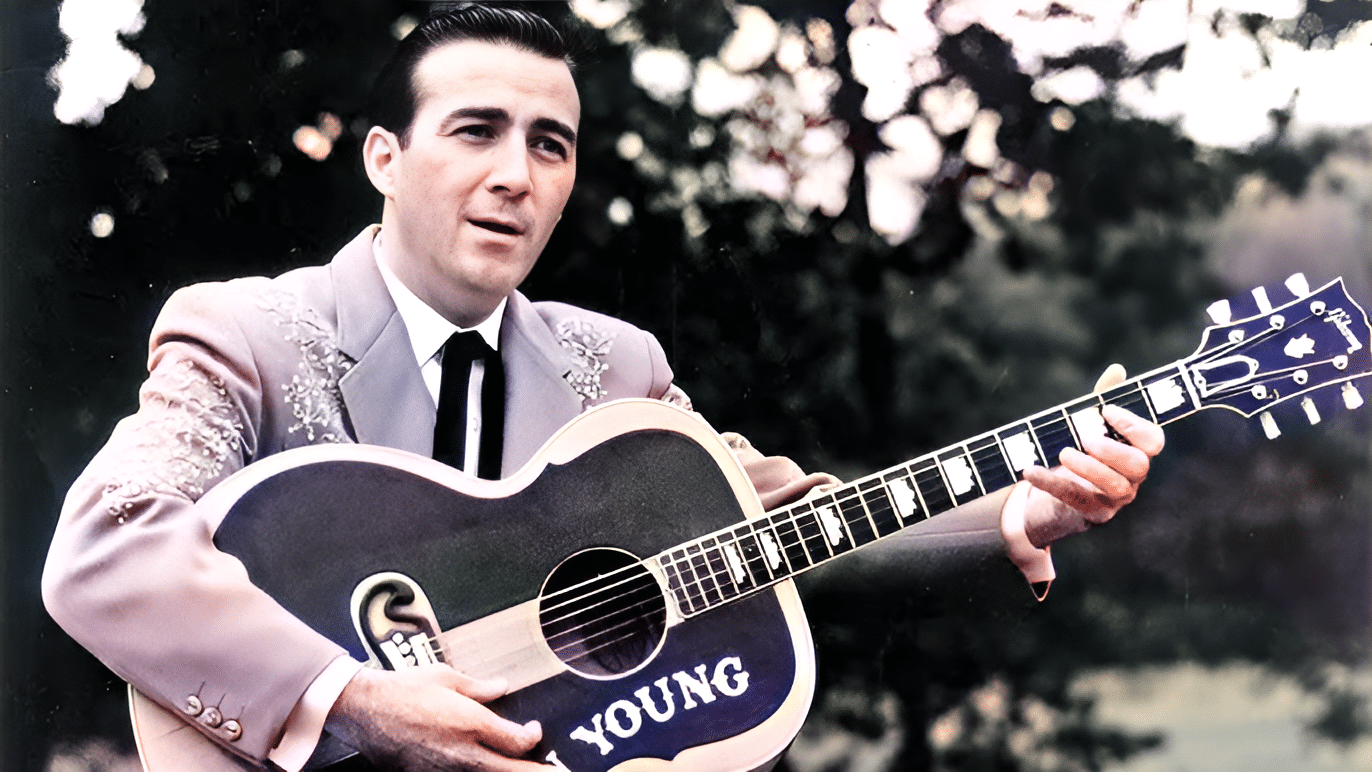
Faron Young’s smooth vocals and charismatic stage presence made him popular among old country singers in the 1950s.
His 1961 hit, “Hello Walls,” became a country standard and showcased his ability to deliver a heartfelt ballad.
Young’s influence on the genre extended beyond his recordings.
He often championed the careers of up-and-coming artists, including Willie Nelson, who wrote “Hello Walls.”
21. Slim Whitman: The Yodeling Cowboy
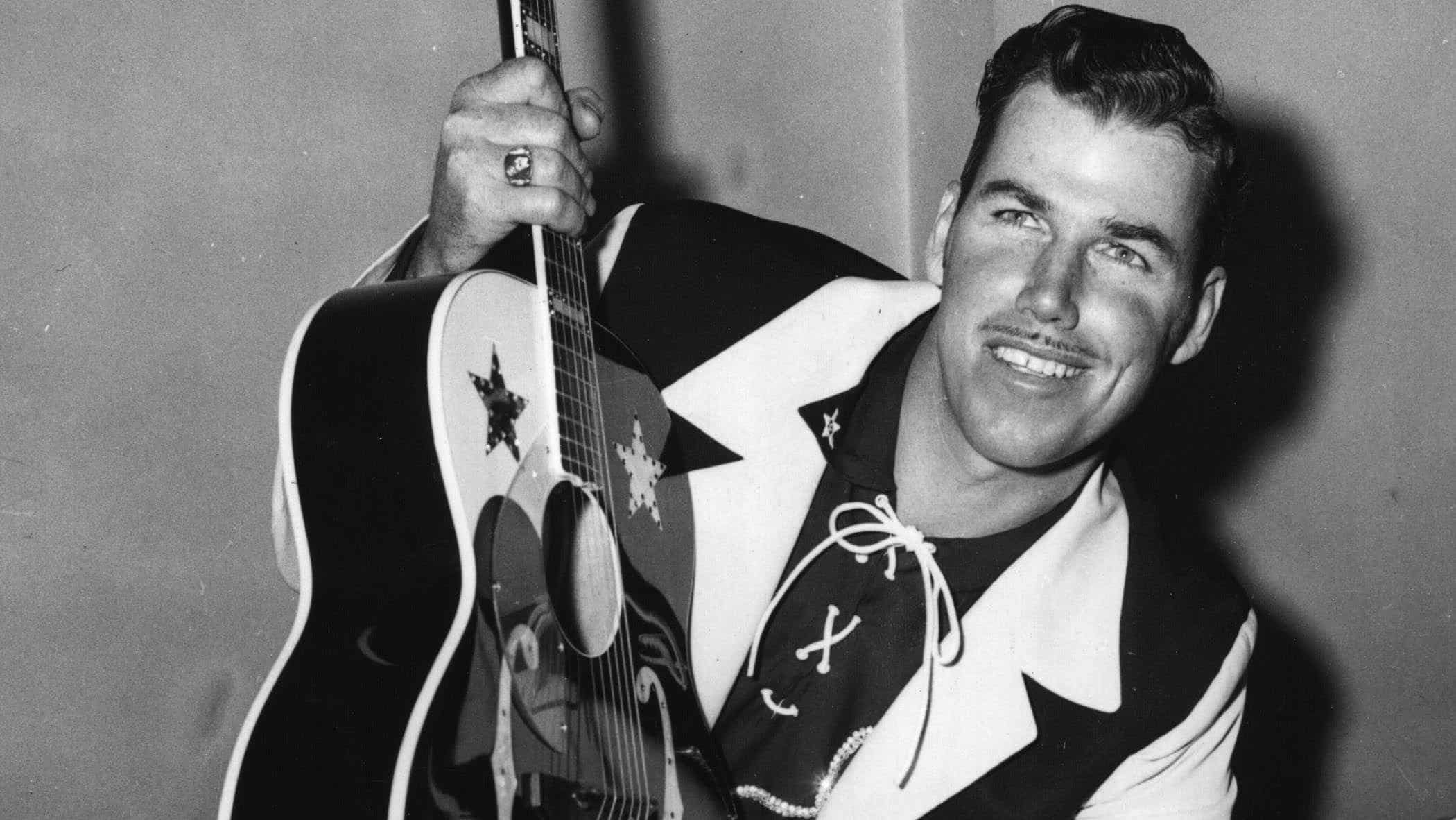
Slim Whitman’s distinctive yodeling style and romantic ballads made him one of the most recognizable old country singers in the 1950s.
His 1952 hit, “Indian Love Call,” showcased his unique vocal abilities and became a worldwide sensation.
Whitman’s music often evoked a sense of nostalgia and longing, making him a favorite among fans of traditional country music.
22. Roy Acuff: The King of Country Music
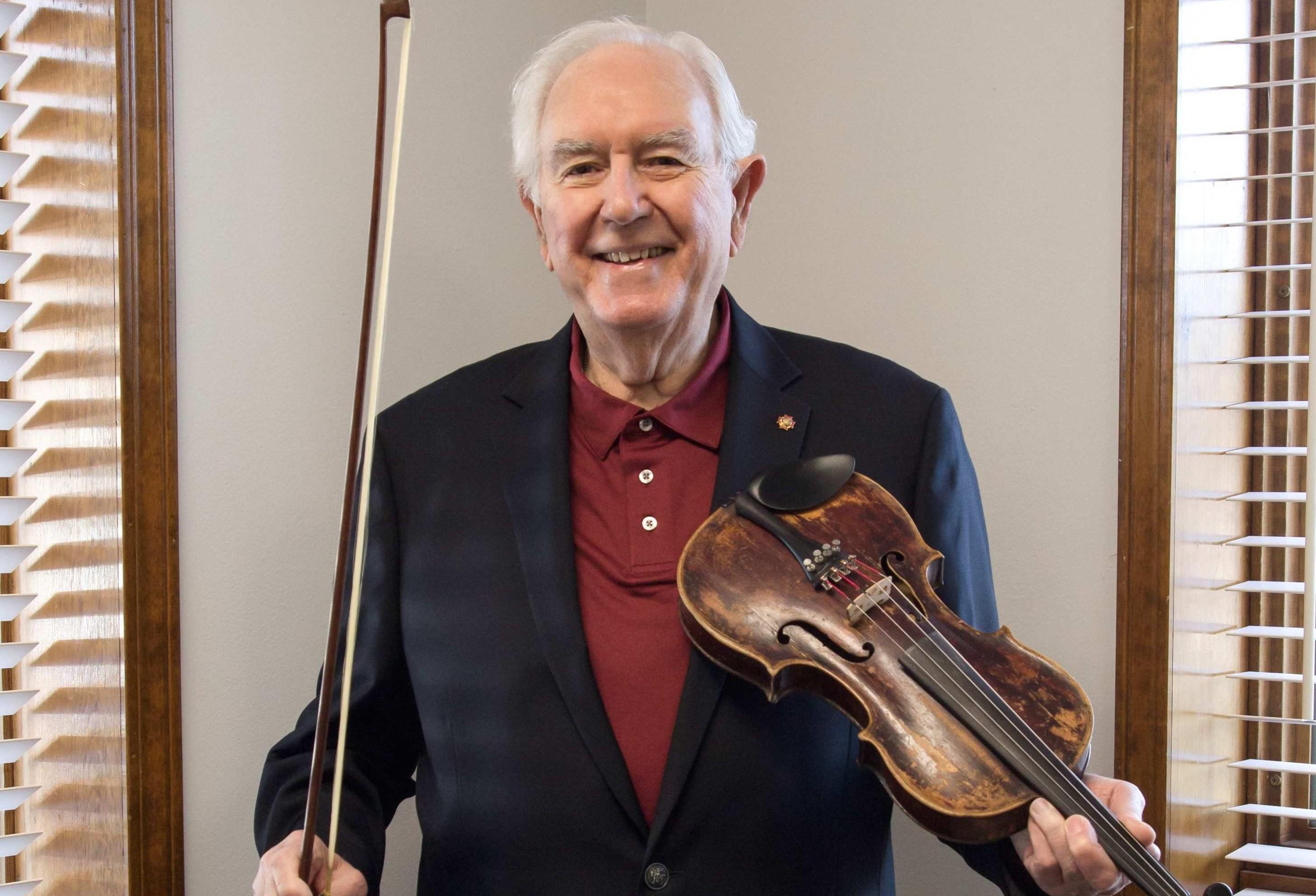
Roy Acuff’s career spanned several decades, but his influence on country music in the 1950s was particularly significant.
As a member of the Grand Ole Opry, Acuff helped establish the show as the premier platform for country music.
His heartfelt vocals and fiddle playing made him a beloved figure among fans of old country singers in the 1950s, and his hits, such as “Wabash Cannonball,” and “Automobile of Life,” remain country classics.
23. Hank Thompson: The Western Swing Master
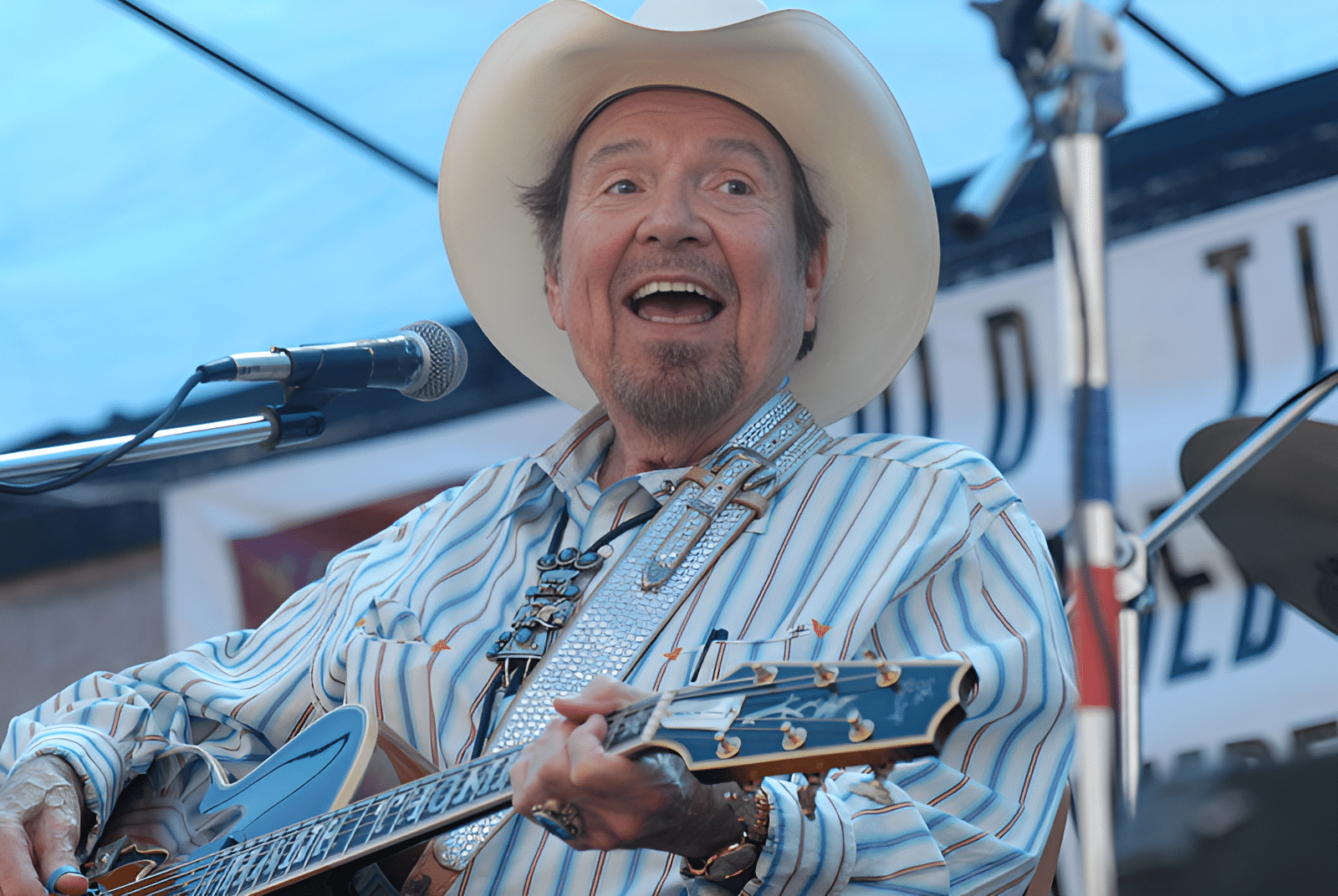
Hank Thompson’s blend of Western swing and honky-tonk made him one of the most popular old country singers in the 1950s.
His 1952 hit, “The Wild Side of Life,” became a honky-tonk standard and inspired a famous answer song, “It Wasn’t God Who Made Honky Tonk Angels,” by Kitty Wells.
Thompson’s music often featured a lively, danceable beat that appealed to nationwide audiences.
24. Porter Wagoner: The Rhinestone Cowboy
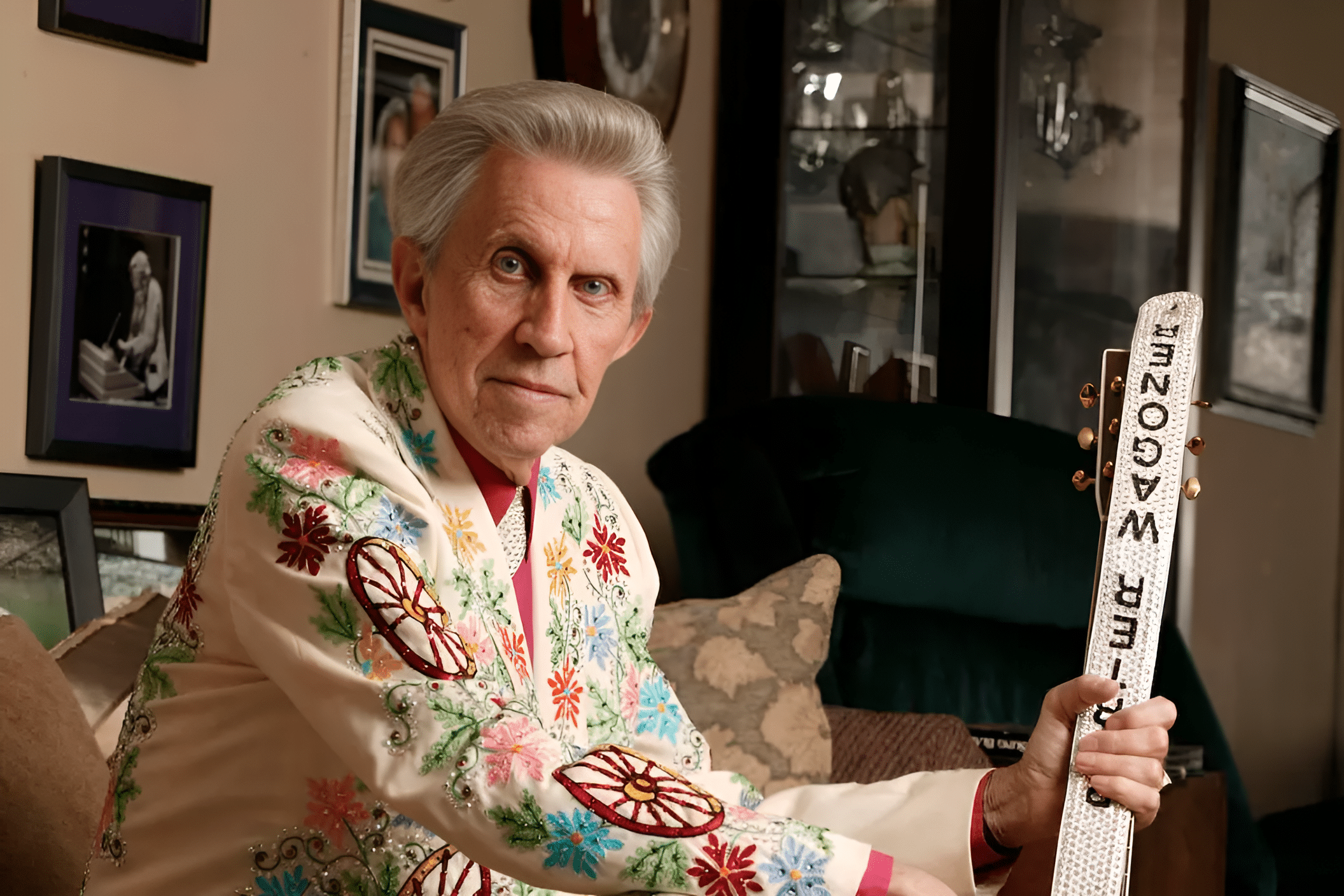
Porter Wagoner’s flashy Nudie suits and engaging stage presence made him one of the most visually iconic old country singers in the 1950s.
His music, including hits like “A Satisfied Mind,” often featured a mix of honky-tonk and gospel influences.
Wagoner’s partnership with a young Dolly Parton in the late ’60s and early ’70s also helped launch her career and solidified his status as a country music legend.
25. Ferlin Husky: The Versatile Vocalist
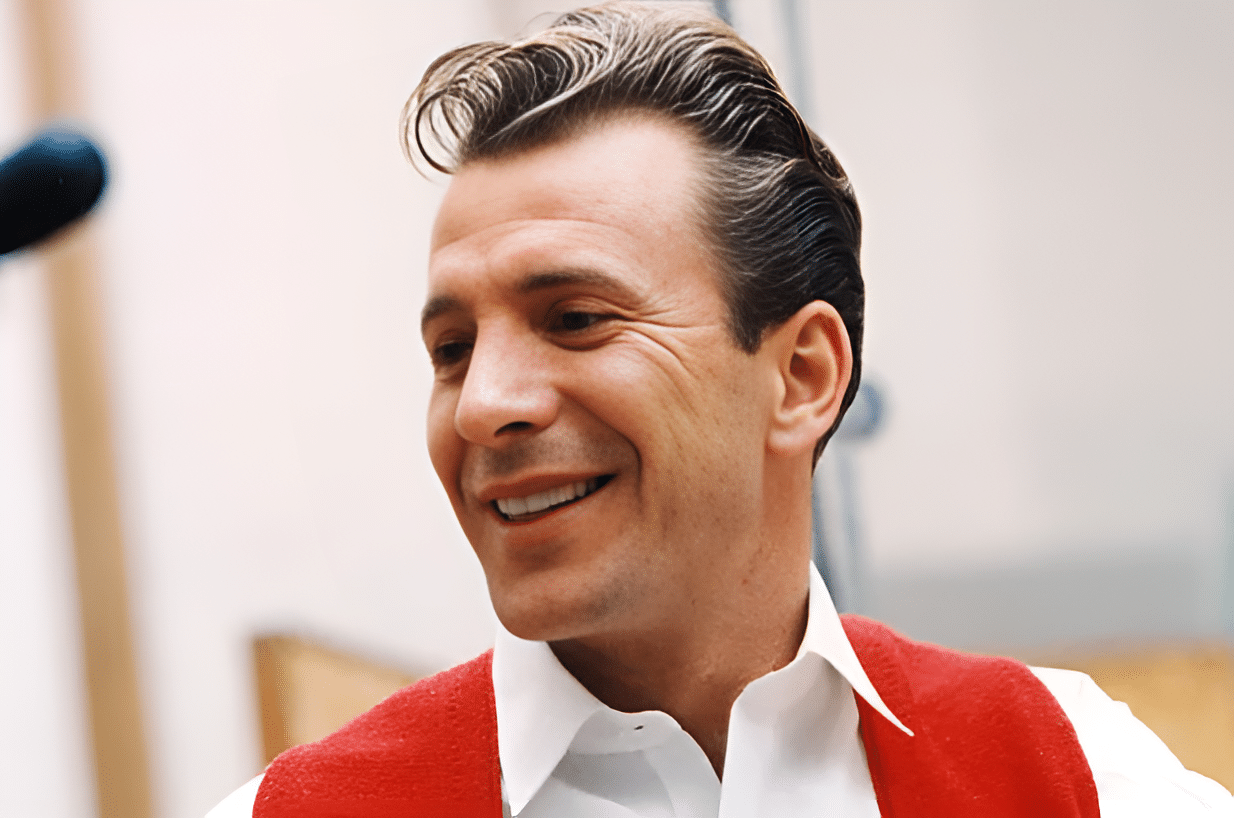
Ferlin Husky’s versatile voice and ability to blend country, pop, and R&B influences made him a standout among old country singers in the 1950s.
His 1957 hit, “Gone,” showcased his passionate delivery and became a crossover success.
Husky’s later hit, “Wings of a Dove,” featured a more spiritual theme and showcased his range as a performer.
His contributions to the genre helped bridge the gap between traditional country and the emerging Nashville Sound.
Final Words
The old country singers in the 1950s left a memorable mark on the genre, shaping the sound and style of country music for generations to come.
From Hank Williams’s raw honesty to Eddy Arnold’s crossover appeal, these iconic figures showcased the diverse talent and artistry that defined the era.
Their influence can still be felt in the music of today’s country artists, who continue to draw inspiration from the pioneers who paved the way.
As we look back on the contributions of these legendary performers, it’s clear that their music will endure beautiful audiences with timeless tales of love, loss, and the human experience.
The old male country singers of the 1950s may be gone, but their legacy is forever woven into the rich collage of country music history.


